On the Importance of 2021 Statewide Summative Assessment Results
Statewide summative assessments are important; they provide an important metric into the effectiveness of our educational system. And while they are important, they are also limited in what they can tell us about this system. Summative assessments are typically a one-time event that measure a small but important set of English Language Arts or Mathematics standards. These assessments are efficient and reliable; but they do not tell the whole story.
A curious person could spend a lifetime digging into Nebraska’s statewide 2021 assessment results. There is rich information to be gleaned about fractions, main ideas, and antonyms. Countless analyses could be conducted and checked to slice and dice the data an infinite number of ways. But if that curious person only had the data from the spring 2021 assessments, and they produced thousands of analyses and wrote hundreds of journal articles about that data, they would miss the point.
They would miss the story. The assessments measure important information that students should know but again they measure only a small fraction of the information that students need to know. These assessments measure what they do in precise but limited ways.
A quick look at the 2021 NSCAS assessments results could easily be interpreted to say that Nebraska students did not learn as much ELA and Mathematics content as students did in previous years. First, that would not surprise any educator or parent when they think back to 2020-2021. It is likely true that there is evidence to suggest that students did not learn as much ELA and Mathematics content as students did previously. But the limited nature of those assessments would fail to tell us what students, teachers, parents, and communities learned and overcame in 2020-2021.
Here are some of things those assessments did not measure.
- Resilience to learn despite a pandemic
- Ingenuity to find new ways to interact remotely and learn digitally
- Curiosity to find a new hobby or to learn about a new subject while in quarantine
- Consideration to be willing to wear a mask all day, every day
- Dedication to establish repetitive rigorous routines to keep spaces safe
- Cleverness to troubleshoot new digital devices and software to connect us
- Patience to wait in line six feet away from everyone
- Compassion to find new ways to manage learning in order to protect those vulnerable to disease
- Inventiveness to find new games to play at recess that followed social distancing guidelines
- Tenacity to investigate every lead during contract tracing to limit potential exposures
- Resolve to protect students and communities while continuing to do the already difficult work of teaching and learning.
- Flexibility to pivot based on the newest scientific information about COVID19
- Relationships that make all the difference in the world to students and families
The statewide assessments do not measure how much our students and educators overcame and what they learned in the process. The data will provide additional evidence to direct our current and future efforts. They tell us that there is still much to learn and a need for improvement; but educators already knew that.
(Dr. Jeremy Heneger is the Director of Statewide Assessment at the Nebraska Department of Education. He holds and Education Doctorate from Doane University and is a 20-year veteran Nebraska educator)
2021-22 Alternate Assessment Waiver Public Comment
Notice of Intent to Apply for a Waiver of Federal Requirement Related to the Percent of Students Who Participate in Statewide Assessments and Opportunity for Comment
To: Public
From: Nebraska Department of Education
Date: December 5, 2020
The Nebraska Department of Education intends to seek a waiver for the 2021-2022 school year of the federal requirement that would limit the number of students in the state who take alternate assessments. The purpose of this notice is to provide you with an opportunity to comment on this intended waiver request.
Under the requirements of the reauthorized Elementary and Secondary Education Act, known as the Every Student Succeeds Act (ESSA), Nebraska would need to limit the total number of students who could be designated to participate in NSCAS Alternate Assessment (NSCAS-AA) to 1.0 percent of the students who are required to participate in NSCAS. The aim of the legislation is to prevent an excessive number of students with disabilities from being designated for alternate assessments. Participation in an alternate assessment may limit their access to the full range of academic content standards and could, as a result, delay or prevent them from eventually meeting the state’s graduation requirements. Generally, students with significant cognitive disabilities are given alternate assessments because they cannot participate in standard assessments, even with accommodations.
The 1.0 percent cap is applied uniformly across all states, regardless of the relative frequency of students with disabilities in the school-age population. It is worth noting that Nebraska currently assesses 1.04 percent of its eligible students on the NSCAS-AA. We anticipate making some progress in the next year to lower the percentage of students taking the NSCAS-AA, but reaching the target set by ESSA would likely take Nebraska several years. In pursuit of this goal, the Department recently shared information and guidance on this topic and will continue to promote awareness of the need for appropriate assessment of students with disabilities by providing technical assistance.
The U.S. Department of Education is allowing states to apply for a waiver extension of this requirement for the current school year (2021-2022). The waiver, if granted, will permit Nebraska to gradually reduce the number of students participating in the NSCAS-AA while continuing to provide technical assistance to schools and districts to assist IEP teams to make informed assessment decisions for students with disabilities.
Additional information about the waiver request is available in pdf.
NDE welcomes your comments regarding the intent to apply for this waiver. Comments will be accepted until December 20, 2021.
Questions may be submitted via email jeremy.heneger@nebraska.gov .
December 2021 Newsletter
Inclusivity, Equity, and Diversity During December
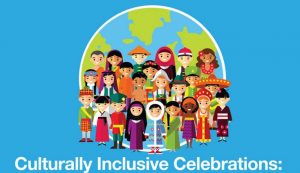 December is a month full of celebration, family, and merriment. There are holidays this month that are observed by religious and cultural groups. Our Jewish friends recognize Hanukkah from Sunday, November 28, 2021 to Monday, December 6, 2021. Christmas celebrations and observances occur on December 25, 2021. African-American families will participate in festivities associated with Kwanzaa. This month I encourage educators to not only discuss, share, and celebrate the holidays that are familiar to them, but if time allows, to introduce some that may be unfamiliar to students. As we continue to strive for inclusivity, equity, and diversity in our social studies classroom, this month makes it a little easier to continue to practice “Windows, Mirrors, and Sliding Glass Doors”. Below are resources and tips to ensure student inclusivity and also help with teaching about both the well and lesser-known December holidays.
December is a month full of celebration, family, and merriment. There are holidays this month that are observed by religious and cultural groups. Our Jewish friends recognize Hanukkah from Sunday, November 28, 2021 to Monday, December 6, 2021. Christmas celebrations and observances occur on December 25, 2021. African-American families will participate in festivities associated with Kwanzaa. This month I encourage educators to not only discuss, share, and celebrate the holidays that are familiar to them, but if time allows, to introduce some that may be unfamiliar to students. As we continue to strive for inclusivity, equity, and diversity in our social studies classroom, this month makes it a little easier to continue to practice “Windows, Mirrors, and Sliding Glass Doors”. Below are resources and tips to ensure student inclusivity and also help with teaching about both the well and lesser-known December holidays.
Tips for Teaching During the Holidays
- Teaching About the Holidays in Public School
- Culturally Responsive Instruction for Holiday and Religious Celebrations
- How Do You Celebrate? An Introduction to Holiday Customs (Elementary)
- The December Dilemma: Acknowledging Religious Holidays in the Classroom
Hanukkah
- How Do We Celebrate? A Cultural History of Hanukkah (Virtual Discussion)
- Hanukkah by Mayim Bialik (Video)
- Educational Resources for Chanukah
- Hanukkah 101
Christmas
- Let’s Celebrate Christmas (Elementary)
- Surprising Origins of Modern-Day Christmas Traditions
- A History of Christmas
- Charles Dickens Christmas!
Kwanzaa
- Official Kwanzaa Website
- Celebrate Kwanzaa in the United States (Elementary)
- Kwanzaa – All About the Holidays
- Kwanzaa First Fruits – National Museum of African-American History and Culture
Three Kings Day (January Holiday)
- When is Three Kings Day and How is it Celebrated?
- How Three Kings Day is Celebrated
- Discovering the Magic of Three Kings Day From Puerto Rico to the U.S.
Islam and the Winter Season
National Pearl Harbor Remembrance Day
- Pearl Harbor – National Park Service
- Pearl Harbor Education Resources – National WWII Museum
- The Road to Pearl Harbor: The United States and East Asia, 1915–1941
- Remembering Pearl Harbor – The National Archives
Bill of Rights Day
- Bill of Rights Day, December 15 – The National Archives
- Bill of Rights Day – United States Courts
- Bill of Rights Day – National Constitution Center
- Bill of Rights Institute
Pledge of Allegiance Day
- Teacher’s Guide to the Pledge of Allegiance
- I Pledge Allegiance… And Know What It Means (Elementary)
- Examining the Pledge of Allegiance
- Tracing the Evolution of the Pledge of Allegiance (Elementary)
Universal Human Rights Month
World101
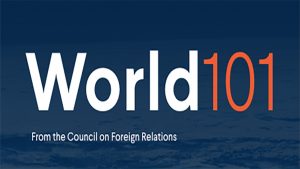 High-quality, standards-aligned classroom resources, lesson plans, teaching inspiration, and professional development opportunities—all inspired by our mission that Global Civics is essential for twenty-first century citizenship. World101 is a growing library of free multimedia resources that provide an immersive learning experience in a variety of settings: in classrooms, in corporate training rooms, and at home. Through its entertaining, interactive story-telling, World101 makes complex international relations and foreign policy issues accessible to learners both inside and outside formal academic settings. World101 will help the American public build an understanding of today’s most pressing issues and how those issues are relevant to them, thus preparing them to make informed choices of public officials (and hold them accountable), compete on a global stage, invest in their futures, and make a difference.
High-quality, standards-aligned classroom resources, lesson plans, teaching inspiration, and professional development opportunities—all inspired by our mission that Global Civics is essential for twenty-first century citizenship. World101 is a growing library of free multimedia resources that provide an immersive learning experience in a variety of settings: in classrooms, in corporate training rooms, and at home. Through its entertaining, interactive story-telling, World101 makes complex international relations and foreign policy issues accessible to learners both inside and outside formal academic settings. World101 will help the American public build an understanding of today’s most pressing issues and how those issues are relevant to them, thus preparing them to make informed choices of public officials (and hold them accountable), compete on a global stage, invest in their futures, and make a difference.
Humanities Nebraska Speakers Bureau
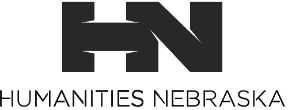 Humanities Nebraska has announced that 31 topics from its Speakers Bureau have been specially selected to represent a special initiative by the National Endowment for the Humanities. “A More Perfect Union” is intended to advance civic education nationwide as we approach the United States of America’s 250th Anniversary. The goal of this initiative is to help Americans better understand the world’s oldest constitutional democracy and how our founding ideals are met in a pluralistic society.
Humanities Nebraska has announced that 31 topics from its Speakers Bureau have been specially selected to represent a special initiative by the National Endowment for the Humanities. “A More Perfect Union” is intended to advance civic education nationwide as we approach the United States of America’s 250th Anniversary. The goal of this initiative is to help Americans better understand the world’s oldest constitutional democracy and how our founding ideals are met in a pluralistic society.
Members of the Humanities Nebraska Speakers Bureau are screened through an auditioning process to ensure that audiences will receive a high-quality educational experience. To assist libraries, schools, clubs and other organizations in planning a speaker event or series, programs from this list are available at a special rate of $25 for the first application in a calendar year and $50 for a second application in the same calendar year. The usual two application limit is also waived, allowing a third application from this list at the $50 rate. For a full listing of topics, please go to our website: https://humanitiesnebraska.org/catalog/diverse-us-history/
Books of the Month
December “Books of the Month”
Educated
 by: Tara Westover
by: Tara Westover
Educated (2018) is a memoir by the American author Tara Westover. Westover recounts overcoming her survivalist Mormon family in order to go to college, and emphasizes the importance of education in enlarging her world. She details her journey from her isolated life in the mountains of Idaho to completing a PhD program in history at Cambridge University. She started college at the age of 17 having had no formal education. She explores her struggle to reconcile her desire to learn with the world she inhabited with her father.
How to Educate An American
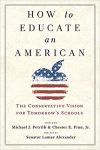 by: Michael J. Petrilli & Chester E. Finn, Jr.
by: Michael J. Petrilli & Chester E. Finn, Jr.
In the years after A Nation at Risk, conservatives’ ideas to reform America’s lagging education system gained much traction. Key items like school choice and rigorous academic standards drew bipartisan support and were put into practice across the country.
Today, these gains are in retreat, ceding ground to progressive nostrums that do little to boost the skills and knowledge of young people. Far from being discouraged, however, conservatives should seize the moment to refresh their vision of quality K–12 education for today’s America. These essays by 20 leading conservative thinkers do just that.
How the Word is Passed
 by: Clint Smith
by: Clint Smith
Beginning in his own hometown of New Orleans, Clint Smith leads the reader through an unforgettable tour of monuments and landmarks—those that are honest about the past and those that are not—that offer an intergenerational story of how slavery has been central in shaping our nation’s collective history, and ourselves.
Paper Trials
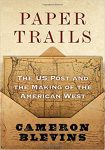 by: Cameron Blevins
by: Cameron Blevins
Cameron Blevins argues that the US Post wove together two of the era’s defining projects: western expansion and the growth of state power. Between the 1860s and the early 1900s, the western United States underwent a truly dramatic reorganization of people, land, capital, and resources. It had taken Anglo-Americans the better part of two hundred years to occupy the eastern half of the continent, yet they occupied the West within a single generation. As millions of settlers moved into the region, they relied on letters and newspapers, magazines and pamphlets, petitions and money orders to stay connected to the wider world.
Retro Report
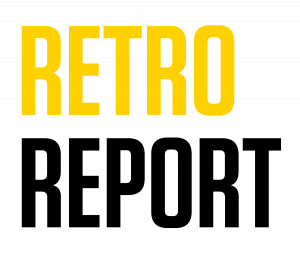 Retro Report is a non-profit journalism organization. In your classroom, we can help foster engagement and critical thinking skills with over 250 short videos that connect history to today.
Retro Report is a non-profit journalism organization. In your classroom, we can help foster engagement and critical thinking skills with over 250 short videos that connect history to today.
Our videos are perfect for many classroom subjects, particularly U.S. History, Civics & Government, Media Literacy, World History, Psychology, and Environmental Studies.
All of our videos, lessons, and student activities are completely FREE.
Our Director of Education, David Olson, spent over 15 years leading Middle School, High School, and College classrooms. Our goal at Retro Report is to meet the needs of educators and provide high quality, FREE materials to help connect past and present.
Kialo Edu
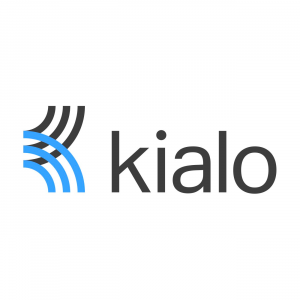 Kialo is a public discussion platform designed to facilitate reasoned debates about complex topics online. Since we first launched in the fall of 2017, we’ve grown into a community with thousands of debates and millions of contributions.
Kialo is a public discussion platform designed to facilitate reasoned debates about complex topics online. Since we first launched in the fall of 2017, we’ve grown into a community with thousands of debates and millions of contributions.
Our mission is to make the world a more thoughtful place, and we believe education is crucial in achieving that. With clear visualization of arguments and with powerful, easy to use navigation tools, Kialo is the perfect resource to help students master critical thinking and reasoning skills.
From the very start, academics have recognized the potential of our platform for educational and research applications. Many academics see Kialo as a solution to the many issues existing in online discourse today. Many teachers have approached us, asking if there were any plans to make an education-focused version of Kialo. We are proud to say that Kialo Edu is now launched and fully operational!
Kialo Edu allows educators to curate spaces for students to work through complex subjects together, while giving students the space to ask questions, discuss, and evaluate new ideas.
Professional Learning Opportunity
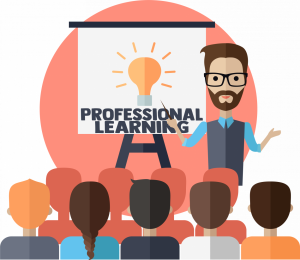 Katrina Gotschall, Social Studies and 7-12 ELA PD Coordinator for ESU 8 in Neligh, Nebraska is looking into creating a learning opportunity for 7-12 Social Studies teachers and 7-12 ELA teachers who teach about The Holocaust and Genocide to come together at Kansas City’s traveling exhibit “Auschwitz. Not Long Ago. Not Far Away” which will be on display at Union Station through March 20, 2022. We would be using the lens of the Inquiry Design Model to explore the exhibit and discussing trauma informed best practices when teaching about The Holocaust.
Katrina Gotschall, Social Studies and 7-12 ELA PD Coordinator for ESU 8 in Neligh, Nebraska is looking into creating a learning opportunity for 7-12 Social Studies teachers and 7-12 ELA teachers who teach about The Holocaust and Genocide to come together at Kansas City’s traveling exhibit “Auschwitz. Not Long Ago. Not Far Away” which will be on display at Union Station through March 20, 2022. We would be using the lens of the Inquiry Design Model to explore the exhibit and discussing trauma informed best practices when teaching about The Holocaust.
She would like to gather some feedback on whether teachers from around the state may be interested in an opportunity like this. Would you take a few minutes to complete this interest survey? You are not committing to anything by completing the survey, but if you answer “yes” to the survey, we will follow up with your after all feedback has been collected and reviewed.
The survey will close Tuesday, December 7th.
Thank you for taking the time to complete this interest survey! If you have any questions, please feel free to email me at katrina.gotschall@esu8ne.org
Nebraska Story Map Competition 2022
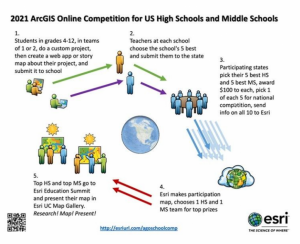 The Nebraska Story Map Competition encourages students to use a powerful mapping application called geographic information systems (GIS) to research and analyze some aspects of Nebraska. Students will showcase their results in a story map. This online competition is open to students in high school grades 9-12 or middle school grades 4-8. Students can complete a map project in a team of 1 or 2 students.
The Nebraska Story Map Competition encourages students to use a powerful mapping application called geographic information systems (GIS) to research and analyze some aspects of Nebraska. Students will showcase their results in a story map. This online competition is open to students in high school grades 9-12 or middle school grades 4-8. Students can complete a map project in a team of 1 or 2 students.
The 5 best HS + 5 best MS map entries will be awarded $100 each. Two-member student teams will divide the cash award. FYI- we have had no middle school student map entries since 2018. Let’s change this!
This URL Nebraska Story Map Competition 2022 (arcgis.com) provides a description of the competition, showcases last year’s top 5 HS student maps, and tutorials on how to use the GIS mapping software called ArcGIS Online. Contact Dr. Lesli Rawlings at lerawli1@wsc.edu if you have any questions about the competition or want more information.
Data USA
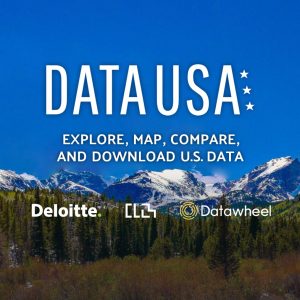 In 2014, Deloitte, Datawheel, and Cesar Hidalgo, Professor at the MIT Media Lab and Director of Collective Learning, came together to embark on an ambitious journey — to understand and visualize the critical issues facing the United States in areas like jobs, skills and education across industry and geography. And, to use this knowledge to inform decision making among executives, policymakers and citizens.
In 2014, Deloitte, Datawheel, and Cesar Hidalgo, Professor at the MIT Media Lab and Director of Collective Learning, came together to embark on an ambitious journey — to understand and visualize the critical issues facing the United States in areas like jobs, skills and education across industry and geography. And, to use this knowledge to inform decision making among executives, policymakers and citizens.
Our team, comprised of economists, data scientists, designers, researchers and business executives, worked for over a year with input from policymakers, government officials and everyday citizens to develop Data USA, the most comprehensive website and visualization engine of public US Government data. Data USA tells millions of stories about America. Through advanced data analytics and visualization, it tells stories about: places in America—towns, cities and states; occupations, from teachers to welders to web developers; industries–where they are thriving, where they are declining and their interconnectedness to each other; and education and skills, from where is the best place to live if you’re a computer science major to the key skills needed to be an accountant.
Data USA puts public US Government data in your hands. Instead of searching through multiple data sources that are often incomplete and difficult to access, you can simply point to Data USA to answer your questions. Data USA provides an open, easy-to-use platform that turns data into knowledge. It allows millions of people to conduct their own analyses and create their own stories about America – its people, places, industries, skill sets and educational institutions. Ultimately, accelerating society’s ability to learn and better understand itself.
Voices of Democracy
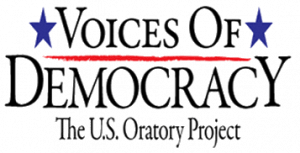 Voices of Democracy promotes the study of great speeches and debates in U.S. history. The project features the words of those who have defined the country’s guiding principles, debated controversial social and political issues, and shaped the identity and character of the American people. The project aims to foster an understanding of the nation’s principles and history and to promote civic engagement among scholars, teachers, and students.
Voices of Democracy promotes the study of great speeches and debates in U.S. history. The project features the words of those who have defined the country’s guiding principles, debated controversial social and political issues, and shaped the identity and character of the American people. The project aims to foster an understanding of the nation’s principles and history and to promote civic engagement among scholars, teachers, and students.
On this site, you will find authenticated speech texts, scholarly articles with critical analyses of those speeches, curriculum materials designed for undergraduate teachers and students, and lesson plans for high school and middle school teachers.
2022 John F. Kennedy Profile in Courage in Essay Contest
Describe and analyze an act of political courage by a US elected official who served during or after 1917.
To learn more about political courage, visit Contest Information and FAQs.
All submissions must adhere to contest requirements.
Contest Deadline
The Profile in Courage Essay Contest opens for submissions on September 1, 2021. The contest deadline is January 14, 2022.
First-place: $10,000
Second-place: $3,000
Five Finalists: $1,000 each
Eight Semi-finalists: $100 each
Get Email Updates
Join our mailing list to get contest tips, updates, and a reminder to submit your essay.
The John F. Kennedy Presidential Library and Museum does not sell or share your personal information or email address.
2022 Summer Professional Development Opportunities in Social Studies
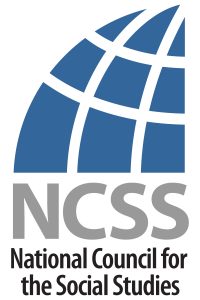 This document was compiled by the Council of State Social Studies Supervisors as a way to communicate the wealth of professional development opportunities available to social studies educators. A special thanks to all of the organizations who helped contribute to this work and to the many organizations who are offering high quality social studies professional development for social studies teachers across the country. Many of the opportunities below are offered free or low cost, but some opportunities do have a cost. When opportunities are highlighted in yellow, it means there are not yet 2022 updates for that particular program. The document will be updated through the spring of 2022. Please email Stefanie Wager at stefanie.rosenbergwager@gmail.com with any questions, comments, or to add programs to this list.
This document was compiled by the Council of State Social Studies Supervisors as a way to communicate the wealth of professional development opportunities available to social studies educators. A special thanks to all of the organizations who helped contribute to this work and to the many organizations who are offering high quality social studies professional development for social studies teachers across the country. Many of the opportunities below are offered free or low cost, but some opportunities do have a cost. When opportunities are highlighted in yellow, it means there are not yet 2022 updates for that particular program. The document will be updated through the spring of 2022. Please email Stefanie Wager at stefanie.rosenbergwager@gmail.com with any questions, comments, or to add programs to this list.
Constitute Project
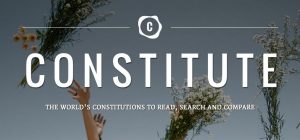 New constitutions are written every year. The people who write these important documents need to read and analyze texts from other places. And citizens need to know, and to be able to understand, what’s in their countries’ foundational documents. Constitute offers access to the world’s constitutions so that users can systematically compare them across a broad set of topics—using an inviting, clean interface.
New constitutions are written every year. The people who write these important documents need to read and analyze texts from other places. And citizens need to know, and to be able to understand, what’s in their countries’ foundational documents. Constitute offers access to the world’s constitutions so that users can systematically compare them across a broad set of topics—using an inviting, clean interface.
Constitute allows you to interact with the world’s constitutions in a few different ways.
- Quickly find relevant passages. The Comparative Constitutions Project (CCP) has tagged passages of each constitution with a topic—e.g., “right to privacy” or “equality regardless of gender”—so you can quickly find relevant excerpts on a particular subject, no matter how they are worded. You can browse the 300+ topics via the “Search | Topics | Filters” menu on the Constitutions page, or see suggested topics while typing in the search bar (which also lets you perform free-text queries).
- Filter searches. Want to view results for a specific region or time period, or explore draft or historical texts? You can limit your search by specific parameters using the “Filters” options in the “Search | Topics | Filters” menu.
- Read excerpts in List or Compare view. You can view searched excerpts within the default “List View,” or you can view two texts (or just their excerpts) side-by-side in “Compare View,” still with the same search functionality.
- Pin for further analysis. Pin excerpts, comparisons, or searches by clicking the “pin” button next to an expanded passage, the pin button at the top of the search results page, or the pin button on the right side of the comparison page. You can then view and download your pinned content by clicking on the “Pinned” link in the upper right section of the Constitutions page. Pinned items can be exported to Google Docs, rendered in PDF, or downloaded in .csv.
Furthermore, all of Constitute’s URLs are deep links, meaning you can link to a particular topic search, constitutional comparison, or even a specific constitutional provision directly, or share them on your social media accounts.
The Countries, Topics, and Data Stories sections of the website allow users to learn more about each country’s constitutional history, explore CCP’s inventory of constitutional topics, or dig deeper into analyzing the data.
Civics! An American Musical
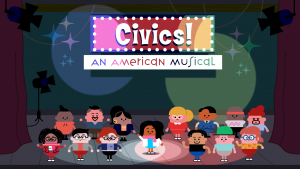 Do your students have what it takes to be the next hit Broadway musical producers? In this free civics learning game, students assume the role of a theater producer adapting true events from United States history to the stage. It’s up to them to analyze primary sources from the Library of Congress to create a new smash Broadway musical hit that is historically accurate and celebrates the power of ordinary citizens in creating change. Students work with different theatrical departments to learn about important aspects of creating a musical, such as costuming, set design, writing, and music. Once all the mini-games are complete, they are rewarded with a scene from their musical on opening night, completely personalized based on the creative choices they made during their game experience.
Do your students have what it takes to be the next hit Broadway musical producers? In this free civics learning game, students assume the role of a theater producer adapting true events from United States history to the stage. It’s up to them to analyze primary sources from the Library of Congress to create a new smash Broadway musical hit that is historically accurate and celebrates the power of ordinary citizens in creating change. Students work with different theatrical departments to learn about important aspects of creating a musical, such as costuming, set design, writing, and music. Once all the mini-games are complete, they are rewarded with a scene from their musical on opening night, completely personalized based on the creative choices they made during their game experience.
Play for free now!
Yale-New Haven Teachers Institute
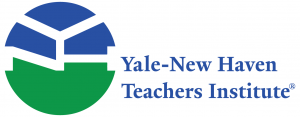 The Yale-New Haven Teachers Institute® is an educational partnership between Yale University and the New Haven Public Schools designed to strengthen teaching and learning in local schools and, by example and direct assistance, in high-need schools across the country. Through the Institute, Yale faculty members and New Haven school teachers work together in a collegial relationship. The Institute is also an interschool and interdisciplinary forum for teachers to collaborate on new curricula.
The Yale-New Haven Teachers Institute® is an educational partnership between Yale University and the New Haven Public Schools designed to strengthen teaching and learning in local schools and, by example and direct assistance, in high-need schools across the country. Through the Institute, Yale faculty members and New Haven school teachers work together in a collegial relationship. The Institute is also an interschool and interdisciplinary forum for teachers to collaborate on new curricula.
Each teacher participating as a Fellow in an Institute seminar with a Yale faculty member studies the seminar subject and prepares a curriculum unit to be taught during the following year. In this way teachers deepen their knowledge of the subjects they teach and develop new curricular material to engage and educate the students in their school courses.
You can view the curriculum units by searching the topical index or the volumes of units published each year.
Curriculum units, the product of the Fellows’ seminar experience, are designed to teach their own students about the seminar subject. Each curriculum unit contains: content objectives – a clear statement of the subject matter the unit seeks to cover; teaching strategies – a unified, coherent teaching plan for those objectives; classroom activities; resources for teachers and students; and an appendix on how the unit implements academic standards of the school district.
ePals
 Our ePals Global Community® pairs educators and students around the world in exciting project-based learning for language learning practice and cultural exchange.
Our ePals Global Community® pairs educators and students around the world in exciting project-based learning for language learning practice and cultural exchange.
ePals is a website that connects K-12 classrooms in more than 99 countries to share content and ideas and collaborate on projects (including pen pal exchanges). Teachers create a profile with a brief description about who they’re hoping to connect with and why; for example, a third-grade class that would like to meet French-speaking students to collaborate on a global green living project. Teachers can search for partner classrooms by language, age, and keyword, and can also factor in region/country and class size. The system will also recommend classrooms. Once connected, classes can communicate through a private workspace on the site.
Educators can apply safety filters to each student in their virtual classroom. They can choose to moderate all student messages before they’re sent, to receive copies of all messages once they’re delivered, or just moderate messages that contain flagged content, or opt for open communication with no teacher moderation. Teachers can also access lesson plan ideas and other resources on the site.
SlaveVoyages
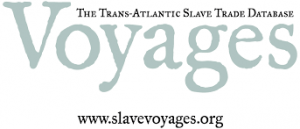 Explore the dispersal of enslaved Africans across the Atlantic world.
Explore the dispersal of enslaved Africans across the Atlantic world.
This digital memorial raises questions about the largest slave trades in history and offers access to the documentation available to answer them. European colonizers turned to Africa for enslaved laborers to build the cities and extract the resources of the Americas. They forced millions of Africans across the Atlantic to the Americas, and from one part of the Americas to another. Analyze these slave trades and view interactive maps, timelines, and animations to see the dispersal in action.
The Trans-Atlantic and Intra-American slave trade databases are the culmination of several decades of independent and collaborative research by scholars drawing upon data in libraries and archives around the Atlantic world. The new SlaveVoyages website itself is the product of three years of development by a multi-disciplinary team of historians, librarians, curriculum specialists, cartographers, computer programmers, and web designers, in consultation with scholars of the slave trade from universities in Europe, Africa, South America, and North America. The National Endowment for the Humanities was the principal sponsor of this work carried out originally at Emory Center for Digital Scholarship, the University of California at Irvine, and the University of California at Santa Cruz. The Hutchins Center of Harvard University has also provided support. The website is currently hosted at Rice University.
November 2021 Newsletter
American Indian / Native American Heritage Month
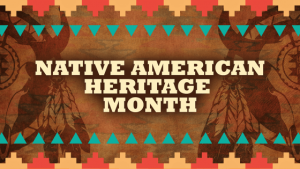 What started at the turn of the century as an effort to gain a day of recognition for the significant contributions the first Americans made to the establishment and growth of the U.S., has resulted in a whole month being designated for that purpose.
What started at the turn of the century as an effort to gain a day of recognition for the significant contributions the first Americans made to the establishment and growth of the U.S., has resulted in a whole month being designated for that purpose.
One of the very proponents of an American Indian Day was Dr. Arthur C. Parker, a Seneca Indian, who was the director of the Museum of Arts and Science in Rochester, N.Y. He persuaded the Boy Scouts of America to set aside a day for the “First Americans” and for three years they adopted such a day. In 1914, Red Fox James, a Blackfoot Indian, rode horseback from state to state seeking approval for a day to honor Indians. On December 14, 1915, he presented the endorsements of 24 state governments at the White House. There is no record, however, of such a national day being proclaimed.
The first American Indian Day in a state was declared on the second Saturday in May 1916 by the governor of New York. Several states celebrate the fourth Friday in September. In Illinois, for example, legislators enacted such a day in 1919. Presently, several states have designated Columbus Day as Native American Day, but it continues to be a day we observe without any recognition as a national legal holiday. In 1990 President George H. W. Bush approved a joint resolution designating November 1990 “National American Indian Heritage Month.” Similar proclamations, under variants on the name (including “Native American Heritage Month” and “National American Indian and Alaska Native Heritage Month”) have been issued each year since 1994.
Below are resources to help you commemorate American Indian / Native American Heritage Month.
- American Indian, Native American, and Indigenous Persons Resources (Nebraska Department of Education)
- National Native American Heritage Month (The Library of Congress)
- Native American Heritage Month (PBS)
- Student Centered Digital Learning Activities (National Indian Education Association)
- Stories, Lesson Plans, and More (Global Oneness Project)
- Amplify the Voices of Contemporary Native Peoples in Your Classroom (IllumiNative)
- Podcast Lessons for Native American Heritage Month in November (ListenwiseBLOG)
- American Indian History and Heritage (Edsitement)
- Native American Heritage Month (Anti-Defamation League)
Veteran’s Day Resources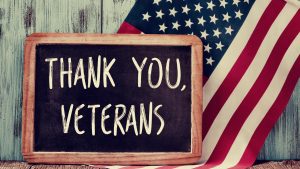
Veterans Day originated as “Armistice Day” on Nov. 11, 1919, the first anniversary of the end of World War I. Congress passed a resolution in 1926 for an annual observance, and Nov. 11 became a national holiday beginning in 1938. Unlike Memorial Day, Veterans Day pays tribute to all American veterans—living or dead—but especially gives thanks to living veterans who served their country honorably during war or peacetime.
State Statute provides that all Nebraska schools should recognize and commemorate specific holidays throughout the school year ((6)Appropriate patriotic exercises suitable to the occasion shall be held under the direction of the superintendent in every public, private, denominational, and parochial school on George Washington’s birthday, Abraham Lincoln’s birthday, Dr. Martin Luther King, Jr.’s birthday, Native American Heritage Day, Constitution Day, Memorial Day, Veterans Day, and Thanksgiving Day, or on the day or week preceding or following such holiday, if the school is in session.).
Here are some teacher and student resources for Veteran’s Day!
- Tomb of the Unknown Soldier Centennial Commemoration
- Activities for Veterans Day (Veterans Administration)
- Veterans Day 2021(Operation We Are Here)
- Veterans Day in the Classroom (National Education Association)
- Veterans Day and the Meaning of Sacrifice (PBS)
- Veterans Day Lessons Your Students Won’t Forget (Western Governors University)
Aviation History Month
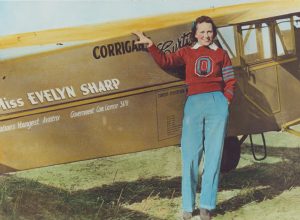 November is National Aviation History Month and is dedicated to exploring, recognizing and celebrating America’s great contributions and achievements in the development of aviation. Aviation history refers to the history of development of mechanical flight — from the earliest attempts in kites and gliders to powered heavier-than-air, supersonic and space flights.
November is National Aviation History Month and is dedicated to exploring, recognizing and celebrating America’s great contributions and achievements in the development of aviation. Aviation history refers to the history of development of mechanical flight — from the earliest attempts in kites and gliders to powered heavier-than-air, supersonic and space flights.
Take a moment this month to celebrate aviation and Nebraska’s own history making Aviator, Evelyn “Sharpie” Sharp!
https://natlvtn.org/evelyn-sharp/
Books of the Month
November “Books of the Month”
“An Indigenous Peoples’ History of the United States” by Roxanne Dunbar-Ortiz
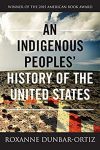
Today in the United States, there are more than five hundred federally recognized Indigenous nations comprising nearly three million people, descendants of the fifteen million Native people who once inhabited this land. The centuries-long genocidal program of the US settler-colonial regimen has largely been omitted from history. Now, for the first time, acclaimed historian and activist Roxanne Dunbar-Ortiz offers a history of the United States told from the perspective of Indigenous peoples and reveals how Native Americans, for centuries, actively resisted expansion of the US empire.
“Bury My Heart at Wounded Knee” by Dee Brown
 First published in 1970, Bury My Heart at Wounded Knee is Dee Brown’s eloquent, meticulously documented account of the systematic destruction of American Indians during the second half of the nineteenth century. Using council records, autobiographies, and firsthand descriptions, Brown introduces readers to great chiefs and warriors of the Dakota, Ute, Sioux, Cheyenne, and other tribes, revealing in heart wrenching detail the battles, massacres, and broken treaties that methodically stripped them of freedom.
First published in 1970, Bury My Heart at Wounded Knee is Dee Brown’s eloquent, meticulously documented account of the systematic destruction of American Indians during the second half of the nineteenth century. Using council records, autobiographies, and firsthand descriptions, Brown introduces readers to great chiefs and warriors of the Dakota, Ute, Sioux, Cheyenne, and other tribes, revealing in heart wrenching detail the battles, massacres, and broken treaties that methodically stripped them of freedom.
“Destiny of the Republic” by Candice Millard
 James Abram Garfield was one of the most extraordinary men ever elected president. Born into abject poverty, he rose to become a wunderkind scholar, a Civil War hero, a renowned congressman, and a reluctant presidential candidate who took on the nation’s corrupt political establishment. But four months after Garfield’s inauguration in 1881, he was shot in the back by a deranged office-seeker named Charles Guiteau. Garfield survived the attack, but became the object of bitter, behind-the-scenes struggles for power—over his administration, over the nation’s future, and, hauntingly, over his medical care. Meticulously researched, epic in scope, and pulsating with an intimate human focus and high-velocity narrative drive, The Destiny of the Republic brings alive a forgotten chapter of U.S. history.
James Abram Garfield was one of the most extraordinary men ever elected president. Born into abject poverty, he rose to become a wunderkind scholar, a Civil War hero, a renowned congressman, and a reluctant presidential candidate who took on the nation’s corrupt political establishment. But four months after Garfield’s inauguration in 1881, he was shot in the back by a deranged office-seeker named Charles Guiteau. Garfield survived the attack, but became the object of bitter, behind-the-scenes struggles for power—over his administration, over the nation’s future, and, hauntingly, over his medical care. Meticulously researched, epic in scope, and pulsating with an intimate human focus and high-velocity narrative drive, The Destiny of the Republic brings alive a forgotten chapter of U.S. history.
“Integrating Primary and Secondary Sources Into Teaching” by Scott Waring
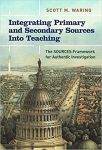 Learn how to integrate and evaluate primary and secondary sources by using the SOURCES framework. SOURCES is an acronym for an approach that educators can use with student in all grades and content areas: Scrutinize the fundamental source, Organize thoughts, Understand the context, Read between the lines, Corroborate and refute, Establish a plausible narrative, and Summarize final thoughts. Waring outlines a clearly delineated, step-by-step process of how to progress through the seven stages of the framework and provides suggestions for seamlessly integrating emerging technologies into instruction. The text provides classroom-ready examples and explicit scaffolding, such as sources analysis sheets for various types of primary and secondary sources.
Learn how to integrate and evaluate primary and secondary sources by using the SOURCES framework. SOURCES is an acronym for an approach that educators can use with student in all grades and content areas: Scrutinize the fundamental source, Organize thoughts, Understand the context, Read between the lines, Corroborate and refute, Establish a plausible narrative, and Summarize final thoughts. Waring outlines a clearly delineated, step-by-step process of how to progress through the seven stages of the framework and provides suggestions for seamlessly integrating emerging technologies into instruction. The text provides classroom-ready examples and explicit scaffolding, such as sources analysis sheets for various types of primary and secondary sources.
Illinois Holocaust Museum and Education Center
2021-2022 Educator Resources from Illinois Holocaust Museum & Education Center
The Illinois Holocaust Museum is excited to share with Nebraska teachers the 2021-2022 educator and student resources. The Museum offers virtual field trips to its world-class exhibitions, including the Karkomi Holocaust Exhibition for grades 7-12, Make a Difference! The Harvey L. Miller Family Youth Exhibition for grades 3-6, and the Take a Stand Center for grades 7-12. Each offers character-building lessons drawn from the Museum’s artifacts and exhibits, including photographs, documents, and rich, first person accounts of Holocaust survivors and Upstanders. The virtual field trips are complete with questions for reflection and discussion, glossaries, and extension activities. These resources invite students to consider the power of choice, responsibility, citizenship, and human r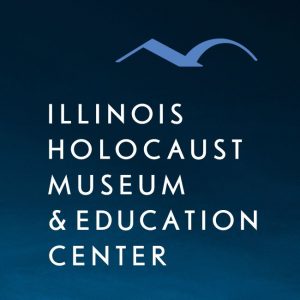 ights, and to discover what influences our decisions to act as bystanders or Upstanders in response to inhumanity. For more information on our onsite and virtual field trips, please click on the link: https://www.ilholocaustmuseum.org/students-educators/field-trips/
ights, and to discover what influences our decisions to act as bystanders or Upstanders in response to inhumanity. For more information on our onsite and virtual field trips, please click on the link: https://www.ilholocaustmuseum.org/students-educators/field-trips/
The Museum has many more resources available including traveling and virtual teaching trunks that allows educators to create meaningful age/grade-appropriate lessons employing award–winning fiction and nonfiction, historical references, and other educational materials. Each trunk has been carefully developed to address State and National Learning Standards, including Common Core State Standards. Teaching Trunks are provided free of charge. https://www.ilholocaustmuseum.org/students-educators/teaching-trunks/
Each year, the Museum offers three Student Leadership Days for students in 5-6 grades, 7-8 grades, and 9-11th. Each program engages students in a variety of activities that inspire them to build leadership skills, explore their roles as citizens, and develop a deeper awareness and understanding of the Holocaust, genocide, and other human rights issues. Students return to their communities equipped to promote greater acceptance and understanding. Students leave with increased knowledge and tools and resources to stand up against injustice and bigotry. https://www.ilholocaustmuseum.org/students-educators/student-leadership-days/
Their Professional Development workshops engages teachers with range of topics around the Holocaust, genocide, civics, and human rights. At each workshop, educators will gain new classroom resources, activities, and content knowledge that can help them with their units. https://www.ilholocaustmuseum.org/students-educators/professional-development/upcoming-trainings/
If you would like to share this information with your District Administrators, Curriculum Coordinators, or other teachers, and they are interested in a short preview, please share this google form and the Education Team will follow up.
101st NCSS Annual Conference Goes Virtual
From the website:
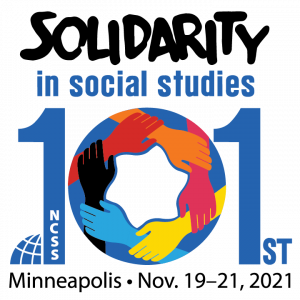 After much deliberation, the NCSS Board of Directors has made the decision to host the 101st Annual Conference as a fully virtual event. (Read the full announcement.)
After much deliberation, the NCSS Board of Directors has made the decision to host the 101st Annual Conference as a fully virtual event. (Read the full announcement.)
The NCSS 101st Annual Conference will be held online from Monday-Sunday, November 15-21, 2021. Last year we delivered the hottest virtual conference of the season, and this year will be no different as we focus on Solidarity in Social Studies.
This year’s conference is designed with you in mind, based on what we have learned from hosting and attending virtual conferences. This is professional learning designed to fit your lifestyle. Our full week will provide you with the most engaging and comfortable environment to experience your best virtual event yet.
You will not need to attend the virtual conference for a full week. Most of the live presentations will be scheduled on Saturday and Sunday, and perhaps during the week in the evening. New recorded sessions will be released each day for on-demand viewing.
- Experience more than 300+ hours of social studies content to increase your professional learning. All sessions will be recorded and available on-demand for registrants until April 30, 2022.
- Get the latest in social studies and law-related education.
- Learn from prominent keynote speakers.
- Explore the virtual exhibit hall highlighting the latest social studies products and services.
- Connect with others via virtual networking.
GeoFest Nebraska

GeoFest 2021 is coming up and we’re excited to see you all! It takes place virtually again this year on Saturday November 13th, 2021 from 10:00-1:30.
We are happy to announce that we will be joined by Dr. Sarah Bednarz from Texas A&M (Retired) and Dr. Joseph Kerski (Esri) to help us with our theme of Teaching Spatial Citizenship.
For more information or to register please visit us on Facebook @GEONEbraska or by visiting the event page at https://www.geonebraska.com/geofest.html
Looking forward to seeing you all there!
Nebraska Story Map Competition 2022
 The Nebraska Story Map Competition encourages students to use a powerful mapping application called geographic information systems (GIS) to research and analyze some aspects of Nebraska. Students will showcase their results in a story map. This online competition is open to students in high school grades 9-12 or middle school grades 4-8. Students can complete a map project in a team of 1 or 2 students.
The Nebraska Story Map Competition encourages students to use a powerful mapping application called geographic information systems (GIS) to research and analyze some aspects of Nebraska. Students will showcase their results in a story map. This online competition is open to students in high school grades 9-12 or middle school grades 4-8. Students can complete a map project in a team of 1 or 2 students.
The 5 best HS + 5 best MS map entries will be awarded $100 each. Two-member student teams will divide the cash award. FYI- we have had no middle school student map entries since 2018. Let’s change this!
This URL Nebraska Story Map Competition 2022 (arcgis.com) provides a description of the competition, showcases last year’s top 5 HS student maps, and tutorials on how to use the GIS mapping software called ArcGIS Online. Contact Dr. Lesli Rawlings at lerawli1@wsc.edu if you have any questions about the competition or want more information.
Bill of Rights Institute Homework Help Series
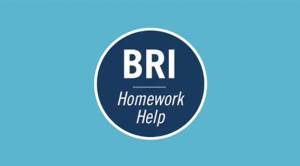
Have you ever looked at your teacher with a puzzled face when they explain history? I know we have. In our new Homework Help Series we break down history into easy to understand 5 minute videos to support a better understanding of American History. The BRI Homework Help Series has videos covering U.S. History, Government, and Civics.
The New York Time and The Learning Network Tutorial Weekly News Quiz
 Every week of the school year, we publish a 10-question interactive quiz to challenge students’ knowledge of the week’s biggest news stories. The quiz invites students to select the missing words or phrases from selections of recent New York Times stories. It also challenges students to discern between real and fake headlines, and to match a mystery photo with the news story it depicts. Practicing with our weekly news quizzes can help students keep up with the news and get in the habit of following current events.
Every week of the school year, we publish a 10-question interactive quiz to challenge students’ knowledge of the week’s biggest news stories. The quiz invites students to select the missing words or phrases from selections of recent New York Times stories. It also challenges students to discern between real and fake headlines, and to match a mystery photo with the news story it depicts. Practicing with our weekly news quizzes can help students keep up with the news and get in the habit of following current events.
2022 John F. Kennedy Profile in Courage in Essay Contest
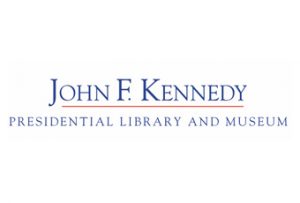
Describe and analyze an act of political courage by a US elected official who served during or after 1917.
To learn more about political courage, visit Contest Information and FAQs.
All submissions must adhere to contest requirements.
Contest Deadline
The Profile in Courage Essay Contest opens for submissions on September 1, 2021. The contest deadline is January 14, 2022.
- First-place: $10,000
- Second-place: $3,000
- Five Finalists: $1,000 each
- Eight Semi-finalists: $100 each
Get Email Updates
Join our mailing list to get contest tips, updates, and a reminder to submit your essay.
The John F. Kennedy Presidential Library and Museum does not sell or share your personal information or email address.
2022 Summer Professional Development Opportunities in Social Studies
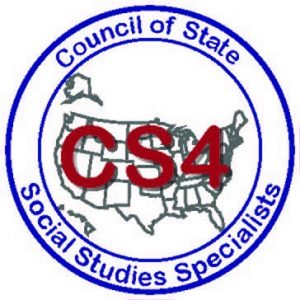 This document was compiled by the Council of State Social Studies Supervisors as a way to communicate the wealth of professional development opportunities available to social studies educators. A special thanks to all of the organizations who helped contribute to this work and to the many organizations who are offering high quality social studies professional development for social studies teachers across the country. Many of the opportunities below are offered free or low cost, but some opportunities do have a cost. When opportunities are highlighted in yellow, it means there are not yet 2022 updates for that particular program. The document will be updated through the spring of 2022. Please email Stefanie Wager at stefanie.rosenbergwager@gmail.com with any questions, comments, or to add programs to this list.
This document was compiled by the Council of State Social Studies Supervisors as a way to communicate the wealth of professional development opportunities available to social studies educators. A special thanks to all of the organizations who helped contribute to this work and to the many organizations who are offering high quality social studies professional development for social studies teachers across the country. Many of the opportunities below are offered free or low cost, but some opportunities do have a cost. When opportunities are highlighted in yellow, it means there are not yet 2022 updates for that particular program. The document will be updated through the spring of 2022. Please email Stefanie Wager at stefanie.rosenbergwager@gmail.com with any questions, comments, or to add programs to this list.
Civic Learning Across the Disciplines – Designing Discussion as Inquiry with Dr. Paula McAvoy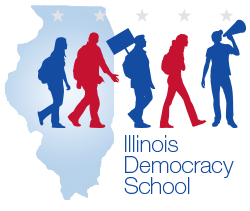
Join the Illinois Democracy School Network as we welcome Dr. Paula McAvoy, Assistant Professor of Social Studies Education, N.C. State University for a timely webinar exploring best practices in using current and controversial issue discussions in the classroom. Dr. McAvoy will share attributes of a good discussion, using discussion as inquiry, model a tug of war activity as well as answer participant questions. Walk away with a deeper understanding of practices aligned to the Pedagogy Companion of the Educating for American Democracy Roadmap that embrace a commitment to learn about and teach full and multifaceted historical and civic narratives with a focus on inclusion and equity in both content and approach.
The Illinois Civics Hub offers additional professional development free of charge for educators.
NCSS Pre-Conference Clinic Korea’s Place in Teaching Social Studies
Are you ready for #NCSS21? Are you ready to join us for another amazing NCSS Clinic opportunity? Would you like to receive a $150.00 stipend to offset costs associated with attending NCSS Virtual Conference? Would you like to learn more about our FREE social studies modules, become part of a larger community, be eligible for future PD opportunities, and be eligible to apply for future travel to Korea? Are you ready to learn how to #TeachKorea?
Clinic participants will receive a $150 stipend!
 WHAT: NCSS PreConference Clinic
WHAT: NCSS PreConference Clinic
TITLE: Korea’s Place in Teaching Social Studies
WHEN: TWO SESSIONS:
- Monday, November 15th from 7:00 — 8:30 PM Eastern
- Tuesday, November 16th from 7:00 — 8:30 PM Eastern
*participants are expected to complete both sessions
WHERE: Online Zoom platform
WHAT YOU WILL EXPERIENCE: The rich history and culture of Korea coupled with important recent developments provide multiple opportunities to engage students. Teachers will learn about lessons aligned to four disciplines of Social Studies:
- History: Students explore cultural diffusion along the Silk Road and the important role of Korea in trade and exchange along this important trade route.
- Geography: Student analysis of maps and various sources centered on Korea will lead students to answer the essential question: What is the site and situation of Korea?
- Economics: Students investigate how comparative advantage and related concepts drive global trade and can explain the growth and importance of South Korea in the global economy.
- Civics: Students will explore concepts of citizenship, including a citizen’s rights and responsibilities in a democracy, based on readings from South Korea and the United States.
This interactive session allows teachers to use and consider how they might adapt materials for the specific populations they teach.
For more information and the find the link to register for NCSS and the Clinic, go to: https://www.worldhistoryde.org/teacher-network/ncss-clinic-koreas-place-in-teaching-social-studies/
Virtual Classroom Visit with a Harvard Student Archaeologist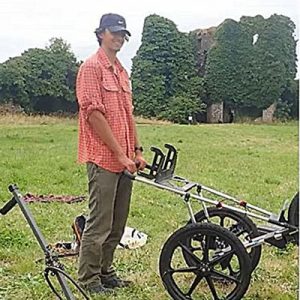
What is archaeology? Why is it important to know the past and the methods used to interpret it? What questions are answered by archaeology? How do you become an archaeologist?
Invite a Harvard archaeology student to your class to discuss how they study the human past and what they are learning. Each student speaker will share a short video in advance about their work and respond to student questions via video call. Interview an archaeologist and bring your social studies to life.
How to Reserve a Free Virtual Classroom Visit with a Harvard Student Archaeologist
Registration opens October 4.
- Teacher selects a Harvard student archaeologist presenter
- Teacher completes this form with a choice of dates and times
- The museum contacts the teacher to discuss details
- The museum sends a confirmation email and the video link for student viewing
- A day in advance, the Harvard student calls the teacher to introduce themselves
- On the reserved day, the Harvard student responds to the teacher’s video call
Thanksgiving Resources
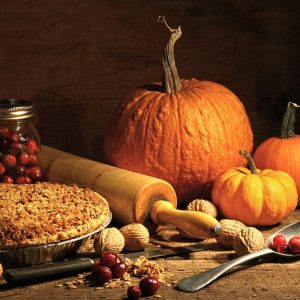 Thanksgiving Day is a national holiday in the United States, and Thanksgiving 2021 occurs on Thursday, November 25. In 1621, the Plymouth colonists and Wampanoag Native Americans shared an autumn harvest feast that is acknowledged today as one of the first Thanksgiving celebrations in the colonies. For more than two centuries, days of thanksgiving were celebrated by individual colonies and states. It wasn’t until 1863, in the midst of the Civil War, that President Abraham Lincoln proclaimed a national Thanksgiving Day to be held each November.
Thanksgiving Day is a national holiday in the United States, and Thanksgiving 2021 occurs on Thursday, November 25. In 1621, the Plymouth colonists and Wampanoag Native Americans shared an autumn harvest feast that is acknowledged today as one of the first Thanksgiving celebrations in the colonies. For more than two centuries, days of thanksgiving were celebrated by individual colonies and states. It wasn’t until 1863, in the midst of the Civil War, that President Abraham Lincoln proclaimed a national Thanksgiving Day to be held each November.
State Statute provides that all Nebraska schools should recognize and commemorate specific holidays throughout the school year ((6)Appropriate patriotic exercises suitable to the occasion shall be held under the direction of the superintendent in every public, private, denominational, and parochial school on George Washington’s birthday, Abraham Lincoln’s birthday, Dr. Martin Luther King, Jr.’s birthday, Native American Heritage Day, Constitution Day, Memorial Day, Veterans Day, and Thanksgiving Day, or on the day or week preceding or following such holiday, if the school is in session.). With one of those holidays being Thanksgiving, the following is a list of resources to help commemorate the holiday.
- Thanksgiving Lesson Plans and Teaching Extensions (Scholastic)
- Giving Thanks (NativeKnowledge 360)
- A Thanksgiving Lesson Plan Booklet from a Native American Perspective – Elementary (Oklahoma City Public Schools)
- Harvest Ceremony: Beyond the Thanksgiving Myth, A Study Guide (National Museum of the American Indian)
- You Are the Historian: Investigating the First Thanksgiving (Plimoth Patuxet Museums)
- Educator Resources for Thanksgiving (BrainPOP)
- Five Ideas to Change Teaching about Thanksgiving, in Classrooms and at Home (Smithsonian Magazine)
- Thanksgiving Teacher Resources (Archaeology Education Clearinghouse)
Bridging the Gap
Welcome to Nebraska’s NAESP PreK-3 Leadership Academy blog! We will be bringing you updates and perspectives from the advisors who are leading the 25 members of cohort 2 through the leadership academy coursework. This month we are featuring Andy DeFreece, Director of Elementary and Early Childhood Education at Millard Public Schools in Omaha.
Why did you want to be part of the Pre-K-3 Leadership Academy?
At Millard Public Schools we’ve worked really hard to align our early childhood and early elementary efforts. I work closely with principals and it has been my experience that they often feel very prepared to lead K-5 efforts but less confident in leading birth through preschool initiatives. Early childhood efforts are often complex because they originate from multiple funding sources, which can make learning how to articulate and focus our programs a challenge. This program was appealing to me because it provides new insights into all of these areas.
What communities are represented in your group?
In the past month which topic has caused the most discussion among the group?
In the past month we’ve been focusing on shared leadership and building the professional capacity of our teacher teams. Professional learning communities aren’t just for K-5 staff members. We can bridge the gap between Pre-K and K-3 and improve outcomes for children through aligned learning, a focus on effective instruction, and meaningful collaboration.
What big ideas resonated with the group most?
I would say the two big ideas which have resonated with our group the most have been understanding child development and its implications for high-quality instruction and the importance of developing and fostering partnerships with families and our communities.
What are you most looking forward to gaining through the Pre-K-3 Leadership Academy?
I find the new learning and networking with colleagues throughout the state to be the most rewarding part of the leadership academy. The content is really high quality and engaging — but listening to the reflections and great thinking of my peers brings it all together for me. I get new ideas each week and am always inspired by the members of my group.
October 2021 Newsletter
Books of the Month
Hello, Nebraska social studies community! Since I can remember I have been an avid reader. As the Amazon truck keeps pulling up to my house to dump off more books, I thought it would be a great idea to share great reads about historical events, monthly observances, topics in education, and what’s on my bookshelf with you! Even better, if you have a suggestion that you would like to share, please send me an email, call, or text and I will make sure to include your book and give you credit in the next newsletter!
 *One Hundred Years of Solitude by Gabriel Garcia Marquez
*One Hundred Years of Solitude by Gabriel Garcia Marquez
One Hundred Years of Solitude is a landmark 1967 novel by Colombian author Gabriel García Márquez that tells the multi-generational story of the Buendía family, whose patriarch, José Arcadio Buendía, founded the town of Macondo. The novel is often cited as one of the supreme achievements in literature.

Bird of Paradise: How I Became Latina by Raquel Cepeda
In 2009, Raquel Cepeda embarked on an exploration of her genealogy using ancestral DNA testing to uncover the truth about her family and the tapestry of races and ethnicities that came together in an ambiguous mix in her features, resulting in “a beautiful story of reconciliation and redemption” (Huffington Post) with her identity and what it means to be Latina.
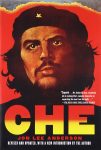 Che: A Revolutionary Life by Jon Lee Anderson
Che: A Revolutionary Life by Jon Lee Anderson
Acclaimed around the world and a national best-seller, this is the definitive work on Che Guevara, the dashing rebel whose epic dream was to end poverty and injustice in Latin America and the developing world through armed revolution.
The Death of Artemio Cruz by Carlos Fuentes
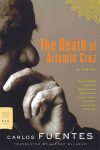
As the novel opens, Artemio Cruz, the all-powerful newspaper magnate and land baron, lies confined to his bed and, in dreamlike flashes, recalls the pivotal episodes of his life. Carlos Fuentes manipulates the ensuing kaleidoscope of images with dazzling inventiveness, layering memory upon memory, from Cruz’s heroic campaigns during the Mexican Revolution, through his relentless climb from poverty to wealth, to his uneasy death. Perhaps Fuentes’s masterpiece, The Death of Artemio Cruz is a haunting voyage into the soul of modern Mexico.
 *The Punch by John Feinstein
*The Punch by John Feinstein
When an on-court fight broke out between the Houston Rockets and the LA Lakers just before Christmas 1977, Rudy Tomjanovitch raced to break it up. He was met by Kermit Washington’s fist. This is the story of how one punch changed two lives, the NBA and how we think about basketball, forever.
*The Last Stand: Custer, Sitting Bull, and the Battle of the Little Bighorn by Nathaniel Philbrick
The Last Stand is Philbrick’s monumental reappraisal of the epochal clash at the Little Bighorn in 1876 that gave birth to the legend of Custer’s Last Stand. Bringing a wealth of new information to his subject, as well as his characteristic literary flair, Philbrick details the collision between two American icons- George Armstrong Custer and Sitting Bull-that both parties wished to avoid, and brilliantly explains how the battle that ensued has been shaped and reshaped by national myth.
 *The Last Gunfight by Jeff Guinn
*The Last Gunfight by Jeff Guinn
On the afternoon of October 26, 1881, in a vacant lot in Tombstone, Arizona, a confrontation between eight armed men erupted in a deadly shootout. The Gunfight at the O.K. Corral would shape how future generations came to view the Old West. Wyatt Earp, Doc Holliday, and the Clantons became the stuff of legends, symbolic of a frontier populated by good guys in white hats and villains in black ones. It’s a colorful story—but the truth is even better.
*Leveraging Leadership by Paul Bambrick-Santoyo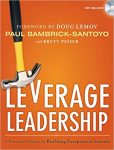
Paul Bambrick-Santoyo (Managing Director of Uncommon Schools) shows leaders how they can raise their schools to greatness by following a core set of principles. These seven principles, or “levers,” allow for consistent, transformational, and replicable growth. With intentional focus on these areas, leaders will leverage much more learning from the same amount of time investment. Fundamentally, each of these seven levers answers the core questions of school leadership: What should an effective leader do, and how and when should they do it.
 *The Leadership Challenge by James Kouzes and Barry Posner
*The Leadership Challenge by James Kouzes and Barry Posner
The Leadership Challenge is the gold-standard manual for effective leadership, grounded in research and written by the premier authorities in the field. With deep insight into the complex interpersonal dynamics of the workplace, this book positions leadership both as a skill to be learned, and as a relationship that must be nurtured to reach its full potential.
*Denotes books personally recommended by Ebony McKiver
Hispanic Heritage Month
From website: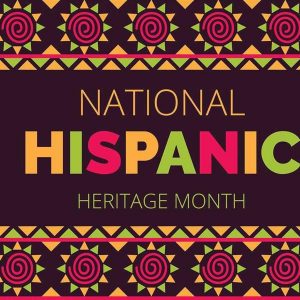
September 15 to October 15 is National Hispanic American Heritage Month
The Library of Congress, National Archives and Records Administration, National Endowment for the Humanities, National Gallery of Art, National Park Service, Smithsonian Institution and United States Holocaust Memorial Museum join in paying tribute to the generations of Hispanic Americans who have positively influenced and enriched our nation and society.
We celebrate Hispanic Heritage Month to recognize the achievements and contributions of Hispanic American champions who have inspired others to achieve success. Discover documents, exhibits, films, blog posts and more from the National Archives and Presidential Libraries that highlight Hispanic culture.
Below are resources that can help you with your classroom lessons to celebrate Hispanic Heritage Month:
National Endowment for the Humanities – Hispanic and Latino Heritage and History in the United States
United States Census Bureau – National Hispanic Heritage Month: Stories, Population Data, and Trade Figures
Smithsonian Folklife Festival Program
Pulitzer Center: Celebrating Latinx Community Organizations and Leaders
National Archive: Primary Sources and Hispanic Heritage Month: A Wonderful Combination
National Park Services:500 Years of Hispanic and Latino History and Heritage
A Latinx Resource Guide: Civil Rights Cases and Events in the United States
Library of Congress: Podcasts on Hispanic Authors
The Disagreement Project
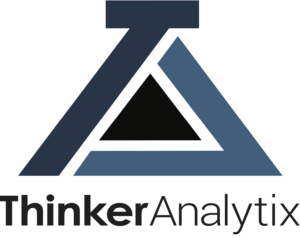 From website:
From website:
The goal of this project is to increase your students ability to engage in productive dialogue with a person who disagrees with them about something important.
Students will have the opportunity to map their arguments and engage in an interactive textbook to improve their argument analysis skills. Each lesson is broken down into very small chunks (short videos and practice exercises) so that you can work through it at your own pace. It will take you about 5-8 hours to work all the way through, if you want to finish everything.
101st NCSS Annual Conference Goes Virtual
From the website:
After much deliberation, the NCSS Board of Directors has made the decision to host the 101st Annual Conference as a fully virtual event. (Read the full announcement.)
The NCSS 101st Annual Conference will be held online from Monday-Sunday, November 15-21, 2021. Last year we delivered the hottest virtual conference of the season, and this year will be no different as we focus on Solidarity in Social Studies.
This year’s conference is designed with you in mind, based on what we have learned from hosting and attending virtual conferences. This is professional learning designed to fit your lifestyle. Our full week will provide you with the most engaging and comfortable environment to experience your best virtual event yet.
You will not need to attend the virtual conference for a full week. Most of the live presentations will be scheduled on Saturday and Sunday, and perhaps during the week in the evening. New recorded sessions will be released each day for on-demand viewing.
- Experience more than 300+ hours of social studies content to increase your professional learning. All sessions will be recorded and available on-demand for registrants until April 30, 2022.
- Get the latest in social studies and law-related education.
- Learn from prominent keynote speakers.
- Explore the virtual exhibit hall highlighting the latest social studies products and services.
- Connect with others via virtual networking.
October 2021 LFI Webinar Series: Learning with the Libraries
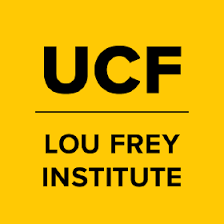 From website:
From website:
On October 6th at 4:00pm eastern, Joshua Montanari, Education Specialist at the Jimmy Carter Presidential Library and Museum will present “Going to the Sources: Jimmy Carter and the Camp David Accords”. This webinar will assist participants in contextualizing the circumstances of the Camp David Accords through the lens of civics and analysis of primary sources from the Carter Library and National Archives.
Educating for American Democracy Educator Resources
From website: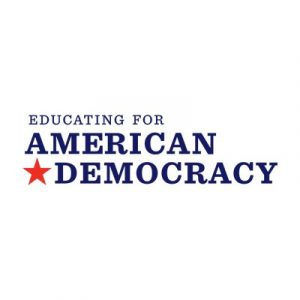
The curated resources linked below are an initial sample of the resources coming from a collaborative and rigorous review process with the EAD Content Curation Task Force.
Each individual resource highlighted on the EAD Educator Resource section goes through a collaborative and rigorous review process over an extended period of time with the EAD Content Curation Task Force before joining our collection, we therefore ask for your patience during the review. The process begins with many organizations participating in an information session exploring the goals of EAD and the content of the Roadmap and Pedagogy Companion. After gaining a deeper understanding, organizations submit resources to be reviewed by the committee of educators. During the submission process, the organizations are able to identify the grade band, content themes, design challenges, and driving questions within which each individual item best fits. Each individual submission is then independently reviewed by two educators using a rubric developed by the EAD Content Curation Task Force, which includes the following categories:
- Alignment to EAD Themes and Driving Questions
- Inquiry
- Rigor
- Equity: Diversity and Inclusion
- Viewpoint Pluralism
- Equity: Accessibility
Prairie Visions Virtual Writing Workshop
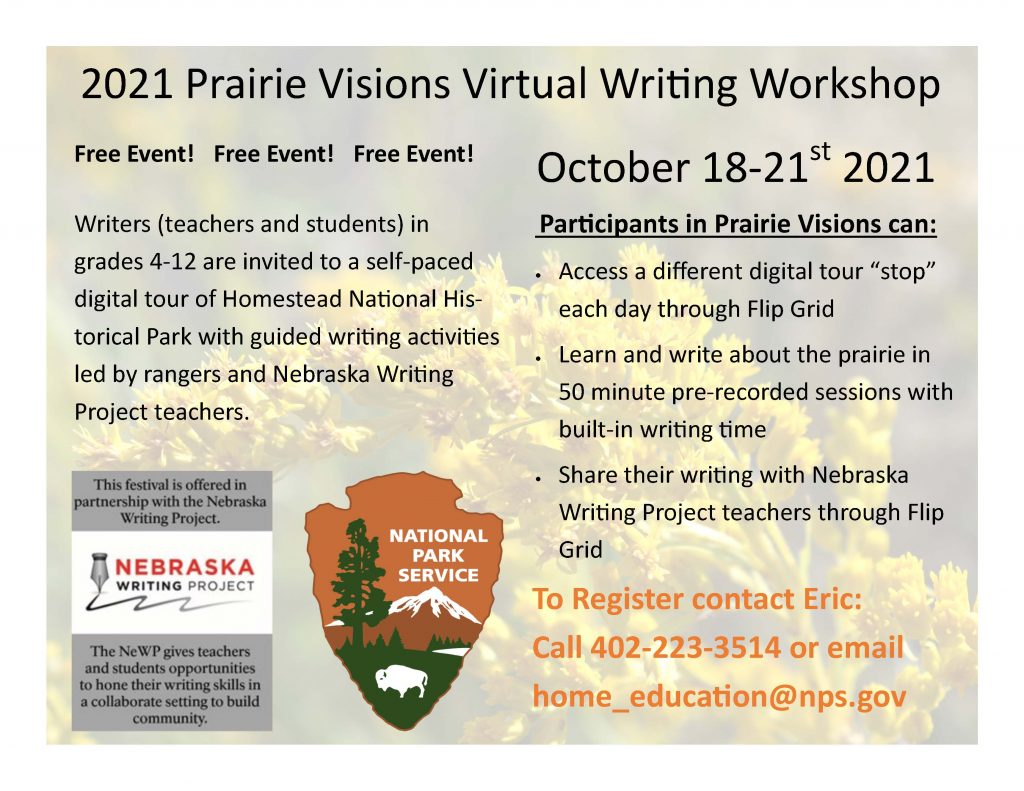
Apply to Become an iCivics Educating for American Democracy Teacher Fellow
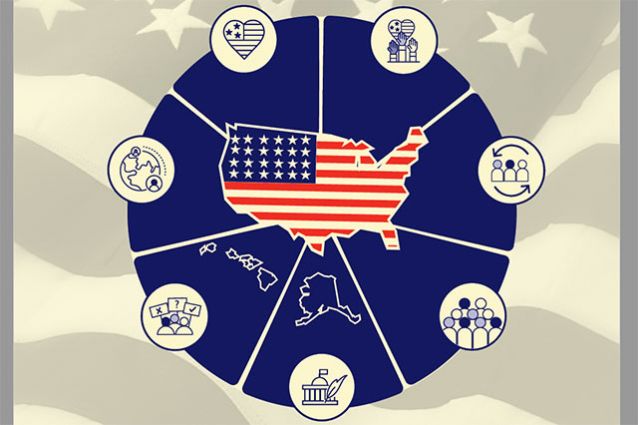 The Roadmap to Educating for American Democracy is a call-to-action to invest in strengthening history and civic learning and to ensure that civic learning opportunities are delivered equitably throughout the country. One of the first steps in implementing the Roadmap is the development of an EAD-aligned early-U.S. History middle school curriculum — and we need the help of dedicated, expert educators like you!
The Roadmap to Educating for American Democracy is a call-to-action to invest in strengthening history and civic learning and to ensure that civic learning opportunities are delivered equitably throughout the country. One of the first steps in implementing the Roadmap is the development of an EAD-aligned early-U.S. History middle school curriculum — and we need the help of dedicated, expert educators like you!
We are accepting applications now through October 15 to join a cohort of 8–10 exceptional, inquiry-driven teachers from across the nation who will collaboratively build the curriculum.
iCivics EAD Teacher Fellowship Benefits & Responsibilities:
- A $4,000 stipend plus additional paid opportunities to engage as an iCivics EAD Teacher Mentor.
- Collaborate and network with other educators and stakeholders.
- Create one unit (about 20 lessons) that will become part of a general year-long curriculum.
- A six-month commitment of approximately 20 hours per month from January 8–June 18, 2022.
Review the application requirements and more details about the fellowship.
We encourage you to consider this opportunity to become a leader in the field and to contribute to the civic education of our youth. If you have any questions, please reach out to Christina Ross. Remember, applications are due October 15!
Nebraska Teaching Moment
Dear Teachers, 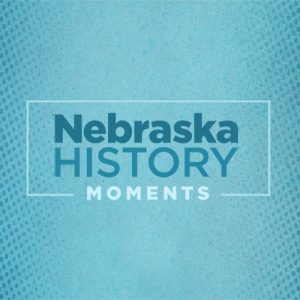
Greetings from History Nebraska! We’re thinking of you as you start your new school year and wish you all the best. Feel free to forward this to friends and they can sign up too!
Just wanted to share 3 good news items with you today PLUS our first post of the school year:
- The Nebraska Teaching Moment is back! I’ll be emailing on Thursdays this school year, now through April.
- Here’s an easy index! Access posts from last year’s Nebraska Teaching Moment email series, organized by topic: Nebraska Teaching Moments Index
-Jessica Stoner, History Nebraska
Schedule Your Capitol Experience Day!
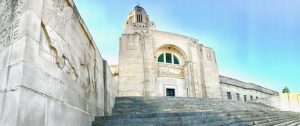 Dear Educator,
Dear Educator,
I am excited to begin accepting reservations to lead your class through our one-day tour of the Nebraska State Capitol featuring the systems that govern our legislative process. Capitol Experience Days focus on legislative systems and include a mock committee hearing and in-person meetings with available government representatives. We aim to give your students an immersive learning experience.
To get a sense of our program and see a sample agenda, visit our Capitol Experience Days page at CivicNebraska.org. We also offer Virtual Capitol Experience, a digital tour that highlights the history of the Legislature and Nebraska state government and includes a list of educator resources.
If you are eager to schedule a Capitol Experience Day for your students and need help getting started, feel free to view the checklist attachment that outlines all the details you’ll need.
I look forward to hearing from you!
Chris McCurdy, Education Specialist at Civic Nebraska
Redistricting Nebraska Materials by League of Women Voters of Lincoln
LWV of Lincoln would like to share recent updated teaching materials on redistricting. We have developed more materials and wanted to share them with social studies teachers across the state!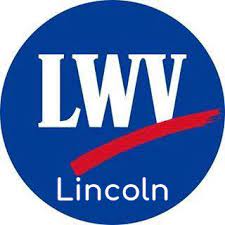
These materials include a complete package for teachers with videos (in English and Spanish) on redistricting, demonstrations of DistrictR–public domain software for district mapping exercises, a jeopardy-like quiz game video, and a variety of quizzes, plus a summary trifold brochure on the process and how it works in Nebraska.
Video Recording Links
- Meant to Represent: Redistricting in Nebraska (Long, English) – https://www.youtube.com/watch?v=s3GIRFNx53o&t=2016
- Meant to Represent: Redistricting in Nebraska (Long, Spanish) – https://www.youtube.com/watch?v=z0dh_p7Aa5s
- Redistricting Overview (Short, English) – https://www.youtube.com/watch?v=zLT5yu5NRDE
Informational Materials
- Redistricting Informational Brochure (English) – https://drive.google.com/file/d/1vgoTvkpL9OTAQsgYQqfy5GZiXO0Bm_1r/view?usp=sharing
- Action Sheet (English and Spanish) – https://drive.google.com/file/d/1-mf3BSqT7OdnDdlvQlti9ou9nHyWWHE7/view?usp=sharing
- LWVNE Redistricting Hub website – https://lwvnebraska.org/redistricting/
- Day of Action Sign-up – https://www.eventbrite.com/e/redistricting-day-of-action-tickets-166261712257
Presentation Materials (Powerpoints)
- Meant to Represent: Redistricting in Nebraska (Long, English) – https://drive.google.com/file/d/1EteQqj-yjd_FWuHv9FE1NRx4rdD31NOe/view?usp=sharing
- Meant to Represent: Redistricting in Nebraska (Long, Spanish) – https://drive.google.com/file/d/1OJj5r9NQeiKTX41RnhqoPPviW74S0uYV/view?usp=sharing
- Redistricting Overview (Short, English) – https://drive.google.com/file/d/1PGqvf88cR0-loa6EAe0nkxN-wlYNYGO2/view?usp=sharing
- Redistricting Overview (Short, Spanish) – https://drive.google.com/file/d/1qBNT1yC4WsT0A5blEWDBSNiw_3zlDYTY/view?usp=sharing
Review Materials
- Jeopardy Review – Whose Line Is It? Redistricting Game Show (English) – https://www.youtube.com/watch?v=dBnQwSW1xZI&t=187
Please let us know if we can further support you on this topic or other voting issues.
Thinkport Education
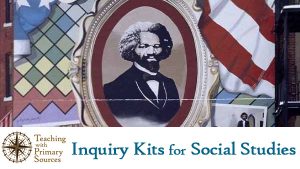 Promote a deeper understanding of history, and explore government and civic life using Library of Congress primary sources. Engage students with primary sources to promote student inquiry and evidence-based reasoning, and apply critical thinking and analysis skills to historical materials.
Promote a deeper understanding of history, and explore government and civic life using Library of Congress primary sources. Engage students with primary sources to promote student inquiry and evidence-based reasoning, and apply critical thinking and analysis skills to historical materials.
Explore theme-based Inquiry Kits that feature thinking questions, primary and secondary sources, and document analysis tools to help you analyze historical materials from the Library of Congress. Or have students learn the research process through a series of self-paced student modules. Practice historical thinking skills, analyze sources, make evidence-based conclusions, and create research projects.
#EconEdMonth Rap Battle Contest
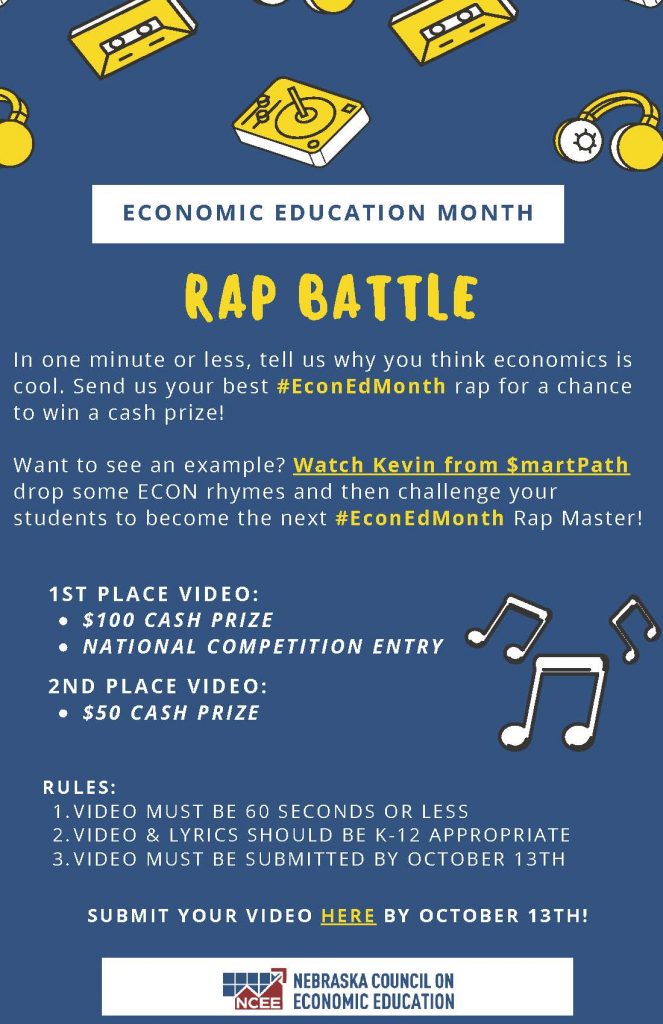
Back to School with Choices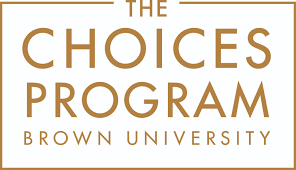
It’s back to school season and that means it is time to make sure you haven’t missed any of the latest materials from the Choices Program! Check out our newest curriculum units, Civics Lessons and Imperial America. This year we’ve also updated our units on terrorism, westward expansion, Cuba, and climate change. Our recent free Teaching with the News lessons cover the COVID-19 pandemic, Juneteenth, and the costs of the War on Terror. We are also happy to be extending the offer for free access to our unit Racial Slavery in the Americas: Resistance, Freedom, and Legacies in Digital Editions through June 2022! Our unit on Japanese American incarceration during WWII is always free, as is our library of more than 1,700 videos that accompany our curriculum units.
Free Digital Editions Unit – Racial Slavery in the Americas: Resistance, Freedom, and Legacies
How does the history of racial slavery shape our world today? This unit provides a wide-ranging overview of racial slavery in the Americas and the opportunity for students to consider how the past shapes the present. This unit is now free in Digital Editions through June 30, 2022.
Free Digital Editions Unit – Japanese American Incarceration in World War II
Students examine U.S.-Japan relations before World War II, experiences of incarcerated Japanese Americans, and ways the Japanese American community and others in the U.S. have remembered incarceration.
Recent Free Teaching with the News Lessons
These free lessons connect your classroom to headlines in the news. Recent lessons include “Processing the Pandemic: Remembering a Year of COVID-19 through Political Cartoons”; “Juneteenth: Symbolism, Ritual, and Meaning”; and “The Costs of War.”
Free Video Library
Our video library features more than 1,700 free short videos (most are 1-4 minutes long) with leading scholars, journalists, practitioners, artists, activists, policy makers, and others addressing topics relevant to our curriculum units.
Endurance22: The Hunt for Shackleton’s Lost Ice Ship
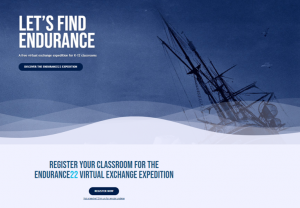 Reach the World, in partnership with the Falklands Maritime Heritage Trust, is thrilled to announce the Endurance22 Expedition to Antarctica, the newest and largest virtual exchange expedition in organizational history! The Endurance22 Expedition will search for Sir Ernest Shackleton’s sunken ship, Endurance, the most famous undiscovered shipwreck in the world. Reach the World Invites K-12 educators and students to access amazing free content for your classroom as you join a world-class team of explorers!
Reach the World, in partnership with the Falklands Maritime Heritage Trust, is thrilled to announce the Endurance22 Expedition to Antarctica, the newest and largest virtual exchange expedition in organizational history! The Endurance22 Expedition will search for Sir Ernest Shackleton’s sunken ship, Endurance, the most famous undiscovered shipwreck in the world. Reach the World Invites K-12 educators and students to access amazing free content for your classroom as you join a world-class team of explorers!
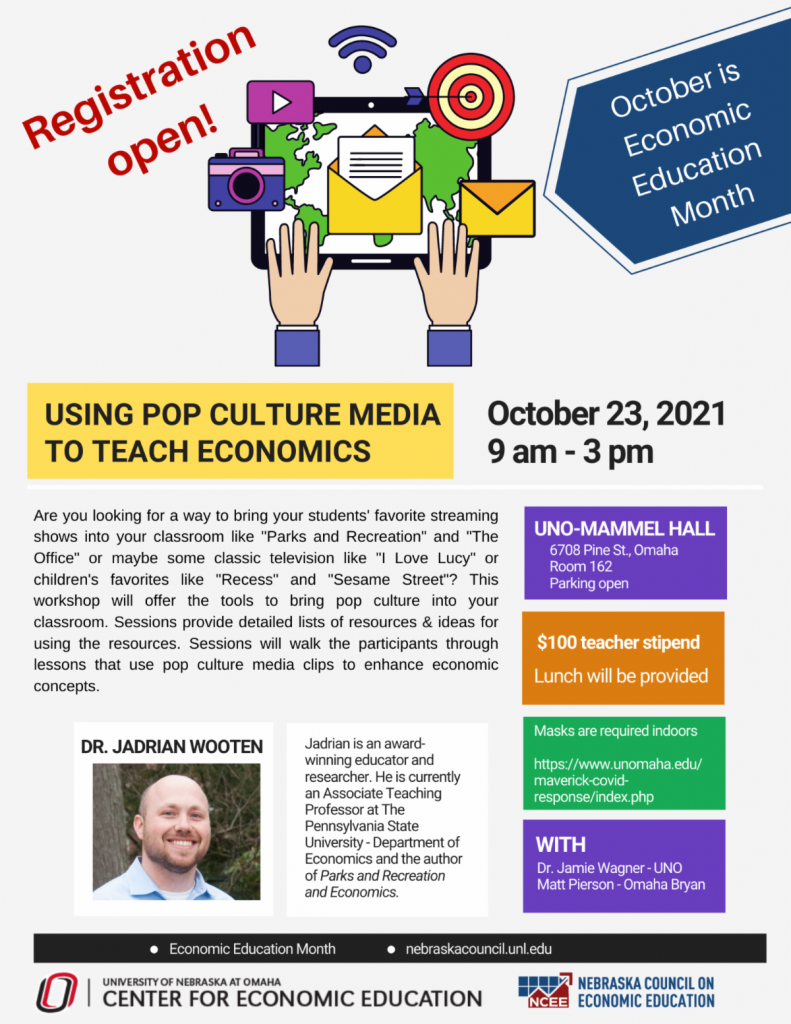
Economics Poster Competition
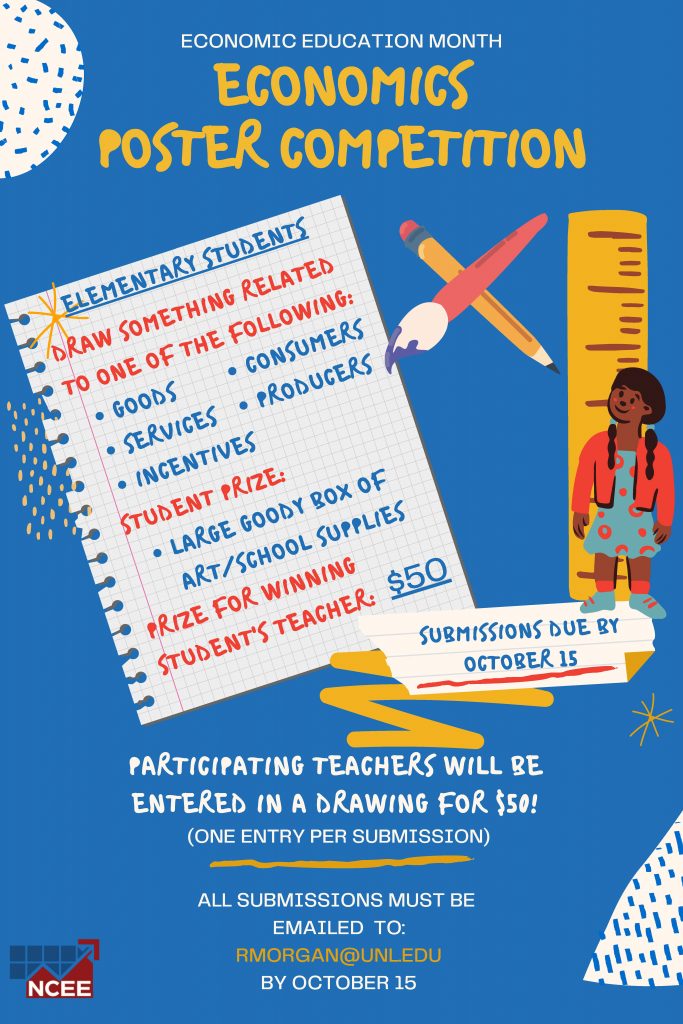
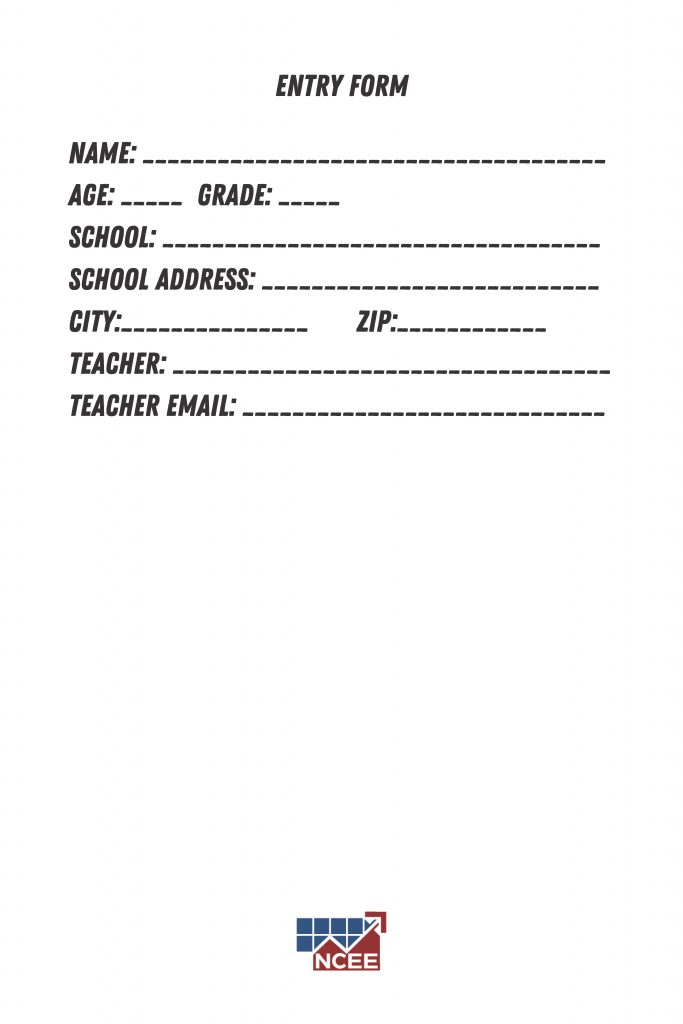
2021-22 NSCAS Fall Workshops Recordings
October 13: NSCAS Growth (YouTube recording, 2 hr, 10min)
October 18: NSCAS ACT (YouTube recording, 1 hr, 37 min)
October 27: NSCAS Alt, PL & Formative Assessment, Science & SIPS, NAEP (YouTube recording, 1 hr, 33 min)
Learning & Leading
Welcome to Nebraska’s NAESP PreK-3 Leadership Academy blog! We will be bringing you updates and perspectives from the advisors who are leading the 25 members of cohort 2 through the leadership academy coursework. This month we are featuring Kim Flanders, Principal at McDonald Elementary in North Platte.
Why did you want to be a part of the Leadership Academy?
Before becoming an elementary principal 10 years ago, I served as an elementary teacher in 3rd, 4th, and 5th grade and was also an instructional coach for North Platte Public Schools. We know that positive, high quality early childhood experiences provide the best opportunity to prepare children for success in school and life. With a strong focus upon the development of a child’s social, emotional, cognitive and physical needs — we have a moral imperative to ensure that the adults in their lives have the knowledge, understanding and fortitude to carry out this mission. As a previous cohort member, it’s an honor to not only continue to build my capacity around best early childhood practices, but also help my fellow colleagues along the way. Together we can improve early childhood programming in our school districts.
Which communities/school districts are represented in your group?
What big ideas resonated with the group most?
Some of the big ideas that have resonated the most during our discussions include: family engagement, transitions, play based learning experiences, and trauma-informed practices.
What are you most looking forward to gaining through the PreK-3 Leadership Academy?
I am looking forward to building my capacity in early childhood while learning and leading alongside members of my cohort.
September 2021 Newsletter
Addressing Disrupted Instruction in the Social Studies: Recommendations on a Matter of Equity and National Importance
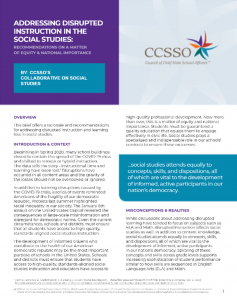 OVERVIEW
OVERVIEW
This brief offers a rationale and recommendations for addressing disrupted instruction and learning loss in social studies.
INTRODUCTION & CONTEXT
Beginning in Spring 2020, many school buildings closed to contain the spread of the COVID-19 virus and shifted to remote or hybrid instruction. The data tells the story – instructional time and learning have been lost.1 Disruptions have occurred in all content areas and the gravity of the losses should not be overlooked or ignored.
The development of informed citizens who contribute to the health of our American democratic republic may be the most important purpose of schools in the United States. Schools and districts must ensure that students have access to high-quality, standards-aligned social studies instruction and educators have access to high-quality professional development. Now more than ever, this is a matter of equity and national importance. Students must be guaranteed a quality education that equips them to engage effectively in civic life. Social studies plays a specialized and indispensable role in our schools’ curricula to ensure these outcomes.
United States Senate Youth Program
Nebraska Social Studies educators! The United States Senate Youth Program application is now available! Encourage your high school juniors and seniors to apply! Application deadline is 4pm CST on September 24, 2021!
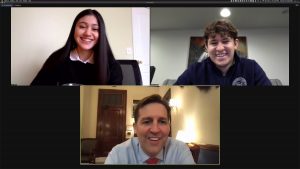
US Senator Ben Sasse of Nebraska speaks with his delegates Claire Doyle and Dominic Mendlik on Zoom during the United States Senate Youth Program on Tuesday, March 23, 2021. One hundred and four high school student delegates – two from each state, the District of Columbia, and the Department of Defense Education Activity – take part in the 59th annual United States Senate Youth Program held online (because of the COVID-19 Pandemic) on March 14-17, 2021 and numerous Senate Zoom meeting from February 17 to March 30, 2021. (© Photo by Jakub Mosur and Erin Lubin).
From the website:
THE 60TH ANNUAL UNITED STATES SENATE YOUTH PROGRAM IS BEING PLANNED FOR MARCH 5–12, 2022 IN WASHINGTON, D.C. THE PROGRAM MAY BE HELD ONLINE PENDING PUBLIC HEALTH GUIDANCE, TO BE DETERMINED IN THE FALL OF 2021.
Delegates will hear major policy addresses by senators, cabinet members, officials of the Departments of State and Defense, leaders of other federal agencies and senior members of the national media. Delegates also traditionally participate in a meeting with a justice of the U.S. Supreme Court and the president of the United States. Most speaking events include in-depth question and answer sessions.
The Hearst Foundations will pay all expenses for Washington Week including transportation, hotel and meals if held in person. The Department of Defense (DoD) annually provides a team of competitively selected men and women officers to serve as mentors and chaperones for the student delegates, and a registered nurse, licensed physician and professional security team are in place at all times throughout an in-person week.
101st National Council for the Social Studies Annual Conference

From the website:
Join Your Social Studies Colleagues in Minneapolis, November 19–21, 2021!
The Centennial Celebration continues with the 101st NCSS Annual Conference, co-hosted by the American Bar Association’s Division for Law-Related Education, the Minnesota Council for the Social Studies and the National Council for Geographic Education in Minneapolis, November 19-21, 2021. Join your social studies colleagues for the largest annual gathering of K-12 social studies classroom teachers, college and university faculty members, curriculum designers and specialists, district and state social studies supervisors, international educators, and social studies discipline leaders.
- Network with your social studies colleagues
- Attend 400+ sessions to increase your professional learning
- Get the latest in social studies and geography education
- Gain valuable CEUs and college credit
- Visit more than 75+ exhibitors highlighting the latest social studies products and services
Nebraska Instructional Materials Collaborative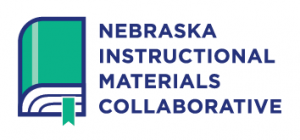
Social Studies now has a tab on the Nebraska Instructional Materials Collaborative website! The Social Studies’ Nebraska Instructional Materials Collaborative seeks to guide and/or remind educators what they should be looking for when selecting high quality social studies instructional materials. Social Studies Education continues to evolve and as a result, we will share resources and materials that empower Nebraska school districts, school systems, and social studies educators in selecting and implementing high quality social studies instructional materials.
Nebraska Studies Now in Spanish!
From the website:
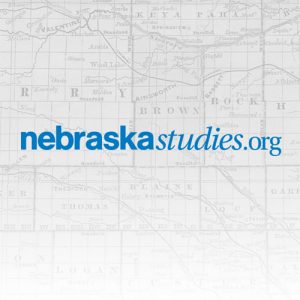 Welcome students, teachers, and history buffs of all ages! Nebraska Studies puts the history of the state at your fingertips, from its very beginning to the 21st century. On this site you can meet the people and explore the events that have shaped this state, through archival photos, historic documents, personal letters, special video segments, informative maps, supplemental activities, pertinent lessons, and much more.
Welcome students, teachers, and history buffs of all ages! Nebraska Studies puts the history of the state at your fingertips, from its very beginning to the 21st century. On this site you can meet the people and explore the events that have shaped this state, through archival photos, historic documents, personal letters, special video segments, informative maps, supplemental activities, pertinent lessons, and much more.
And even better, the entire website is now in Spanish as well!
Nebraska Geoinquiries
From the website: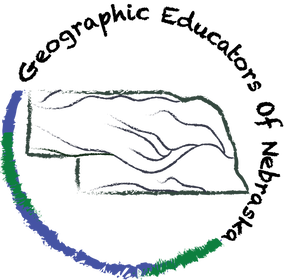
In the spring of 2021 the Geographic Educators of Nebraska received a COVID-19 Educator Relief Fund grant from National Geographic Education for the development of materials to be used by teachers in the state to help teach geography during the global COVID-19 pandemic. A team of GEON members developed, edited, and tested the materials that could then be used by teachers across the state of Nebraska.
For more lesson ideas be sure to check out esri’s Geoinquiries.
National Humanities Center Webinars
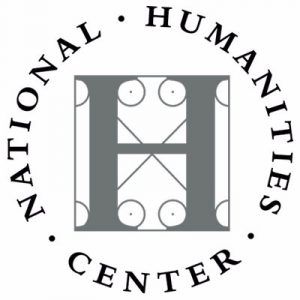 From the website:
From the website:
Live, interactive webinars connect educators with scholars and experts in humanities fields to discuss compelling topics. Webinars are free of charge but require registration.
With a focus on the integration of scholarship and content, inquiry-based pedagogy, and emerging technologies, NHC Education Programs encourage the growth of education professionals in ways that directly impact the classroom. This project-based approach supports the development of classroom-ready instructional materials, research opportunities, and learning experiences.
Through partnerships and in collaboration with professional organizations, educational institutions, and scholarly experts, NHC Education Programs leverage the Center’s resources to strengthen the role of the humanities within the cultural landscape. We invite educators at all levels to join this conversation about how the humanities offer unique and powerful ways to view our complex world.
September 11th Resources
For some of us the events of September 11th seem like yesterday. While for others the last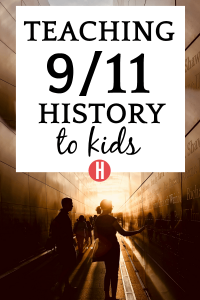 twenty years have been an eternity. This year marks the 20th anniversary of the 9/11 attacks on U.S. soil. It is a time to remember the courage of so many firefighters, paramedics, New York policemen and New York’s Port Authority Officers that sacrificed their lives to save others, and a time to honor the memory of all those who perished at Shanksville, Pennsylvania, the Pentagon and the Twin Towers. It is a time to show reverence for all the lives lost in just 102 minutes of the clock. As Americans, we still remember and we must never forget.
twenty years have been an eternity. This year marks the 20th anniversary of the 9/11 attacks on U.S. soil. It is a time to remember the courage of so many firefighters, paramedics, New York policemen and New York’s Port Authority Officers that sacrificed their lives to save others, and a time to honor the memory of all those who perished at Shanksville, Pennsylvania, the Pentagon and the Twin Towers. It is a time to show reverence for all the lives lost in just 102 minutes of the clock. As Americans, we still remember and we must never forget.
Feel free to use the following September 11-themed resources that include lesson plans, news stories, videos, and other instructional materials to help students comprehend the 9/11 attacks and their lasting impact on the United States and the world. As well as why it was a transformative moment in U.S. history.
Scholastic – Teaching September 11: Powerful Resources About Hope and Understanding
U.S. Department of Education – 9/11 Materials for Teachers
Morningside Center for Teaching Social Responsibilities – 9/11 Anniversary Teaching Guide
Smithsonian National Museum of American History – September 11 Bearing Witness to History
The Teacher’s Corner – Thematic Units: September 11
TeachHub.com – Classroom Activities: Commemorating September 11th
Constitution Day Resources
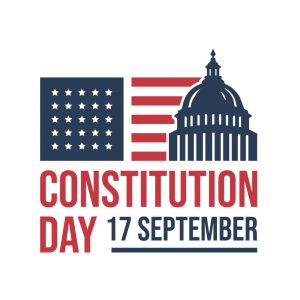
“On September 17, 1787, the delegates to the Constitutional Convention met for the last time to sign the document they had created. To commemorate this day, all Americans are encouraged to observe this important day in our nation’s history by attending local events in your area. Celebrate Constitution Day through activities, learning, parades and demonstrations of our Love for the United State of America and the Blessings of Freedom Our Founding Fathers secured for us.” -ConstitutionDay.com
The following links provide resources for educators looking to celebrate and teach Constitution Day on Thursday, September 17, 2020.
Library of Congress – Constitution Day Teacher Resources
U.S. Department of Education – Commemorating Constitution Day and Citizenship Day
National Constitution Center – Constitution Day
DocsTeach – Bring the Constitution to Life!
iCivics – Constitution Day Lesson Plans
National Constitution Center – To Sign or Not to Sign: The Ultimate Constitution Day Lesson Plan
National Archives – Exploring the United States Constitution E-Book
Center for Civic Education – Constitution Day!
American Bar Association – Constitution Day 2021
Bill of Rights Institute – Celebrate Constitution Day Live!
Nebraska Agriculture in the Classroom
From the website:
Nebraska Agriculture in the Classroom (AITC) is a statewide program that helps K-12 students and teachers develop an awareness and understanding that agriculture is their source of life’s necessities. AITC has a long history of creating resources tied to state education standards to assist teachers in connecting their students to their source of food, fiber, and fuel – agriculture!
and teachers develop an awareness and understanding that agriculture is their source of life’s necessities. AITC has a long history of creating resources tied to state education standards to assist teachers in connecting their students to their source of food, fiber, and fuel – agriculture!
Agriculture in the Classroom ® is a program coordinated by the United States Department of Agriculture (USDA). In Nebraska, the Agriculture in the Classroom program is managed by the Nebraska Farm Bureau Foundation, whose mission is to engage youth, educators, and the general public to promote an understanding of the vital importance of agriculture in the lives of all Nebraskans.
Nebraska Agriculture in the Classroom
- Offers materials to encourage active learning with hands-on activities for youth.
- Creates instructional materials aligned to Nebraska State Standards.
- Equips teachers with free programs and resources to bring agriculture alive in the classroom.
Smithsonian Institute Traveling Exhibition Services – Crossroads: Change in Rural America
 From the website:
From the website:
In 1900, about 40% of Americans lived in rural areas, By 2010, less than 18% of the U.S. population lived in rural areas. In just over a century, massive economic and social changes moved millions of Americans into urban areas. Yet, only 10% of the U.S. landmass is considered urban.
Many Americans consider rural communities to be endangered and hanging on by a thread—suffering from brain drain, inadequate schools, and a barren, overused landscape. Why should revitalizing the rural places left behind matter to those who remain, those who left, and those who will come in the future? Because there is much more to the story of rural America.
Crossroads: Change in Rural America offers small towns a chance to look at their own paths to highlight the changes that affected their fortunes over the past century. The exhibition will prompt discussions about what happened when America’s rural population became a minority of the country’s population and the ripple effects that occurred.
Next Appearing at:
Plains Historical Society , Kimball, Nebraska – 9/11/2021 – 9/30/2021
Archeology Read Along with History Nebraska
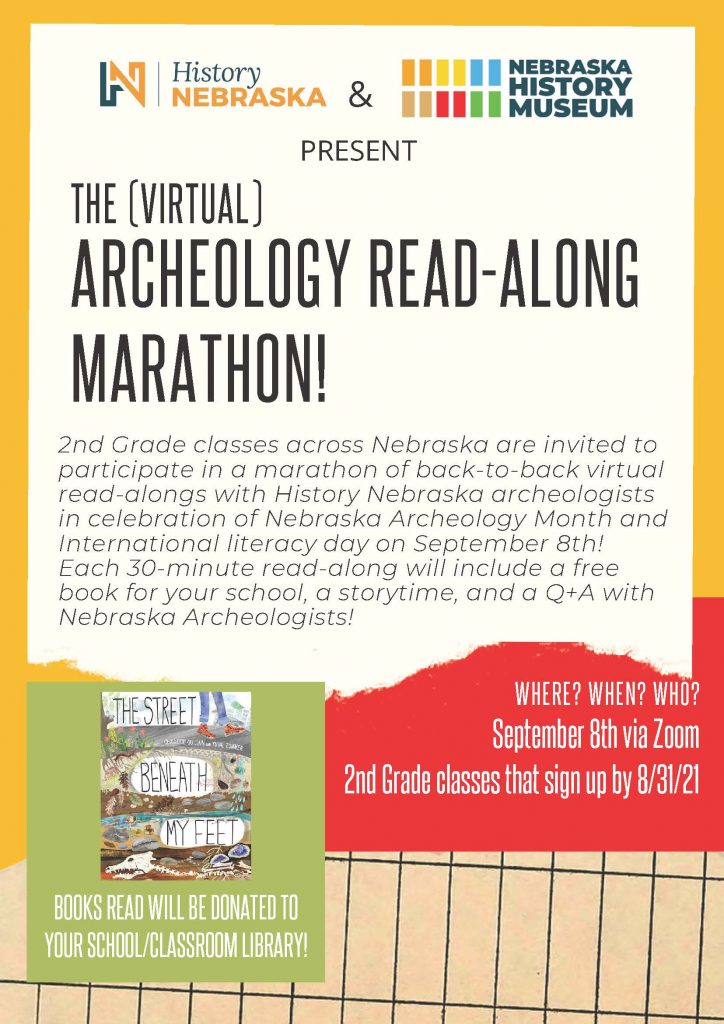
Nebraska ESU Virtual Field Trip Offerings
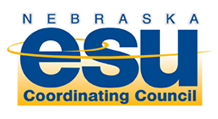 Take students beyond their classrooms to explore the great state of Nebraska! Virtual field trips now present the opportunity to students to explore the Nebraska panhandle, Chimney Rock, fossil beds, and even a trip along the transcontinental railroad! With over 130 activities, you are sure to find something that will align to state standards while engaging your students in Nebraska specific history!
Take students beyond their classrooms to explore the great state of Nebraska! Virtual field trips now present the opportunity to students to explore the Nebraska panhandle, Chimney Rock, fossil beds, and even a trip along the transcontinental railroad! With over 130 activities, you are sure to find something that will align to state standards while engaging your students in Nebraska specific history!
Founders Online
From the website:
In 2010, the National Archives, through its National Historical Publications and Records Commission (NHPRC), entered into a cooperative agreement with The University of Virginia Press to create this site and make freely available online the historical documents of the Founders of the United States of America.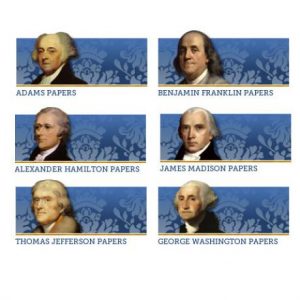
Through this website, you can read and search through thousands of records from George Washington, Benjamin Franklin, Alexander Hamilton, John Jay, John Adams, Thomas Jefferson, and James Madison and see firsthand the growth of democracy and the birth of the Republic.
Now, for the first time, users can freely access the written record of the original thoughts, ideas, debates, and principles of our democracy. You can search across the records of all seven Founders and read first drafts of the Declaration of Independence, the spirited debate over the Constitution and Bill of Rights, and the very beginnings of American law, government, and our national story. You can compare and contrast the thoughts and ideas of these seven individuals and their correspondents as they discussed and debated through their letters and documents.
Teaching with Primary Sources Workshop (Midwest Region)
From the website:
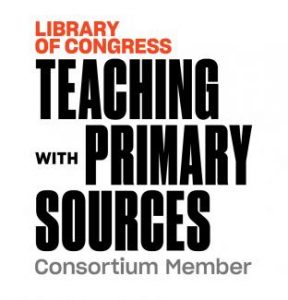 Earn 25 PD Hours!
Earn 25 PD Hours!
Gain knowledge and skills needed to utilize digital primary sources from the Library of Congress website, create activities and lessons that facilitate the Common Core Standards, and engage students in active learning while developing critical thinking skills and constructing knowledge. This course is self-paced and can be taken for professional development hours. For more information email Judy Bee at jbee@ilstu.edu.
The workshops require two online Zoom meetings with lessons and activities to be completed online on your own.
*Please note you must complete “The Fundamentals of Primary Source Instruction” workshop before registering for “Advanced Primary Source Instruction”.
- The Fundamentals of Primary Source Instruction – requires online Zoom meetings on Tuesday, September 21 (4:00-5:30) Central Time and Tuesday, December 7 (4:00 – 5:30) Central Time.
- (*Prerequisite-completed The Fundamentals of Primary Source Instruction) Advanced Primary Source Instruction -requires online Zoom meetings on Thursday, September 23 (4:00 – 5:30) Central Time and Thursday, December 9 (4:00 – 5:30) Central Time
Nebraska Financial Education Network Partnership Summit
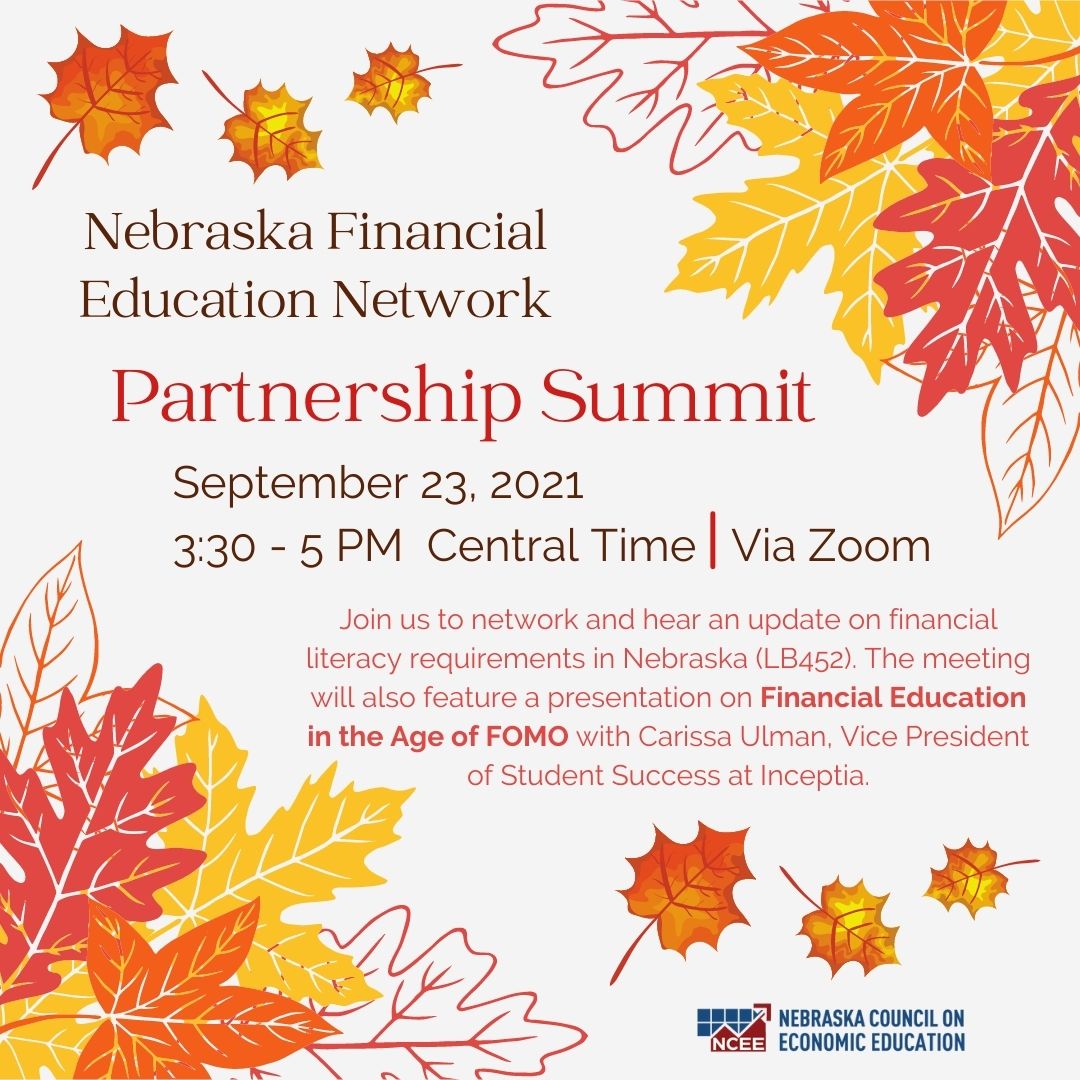
Stock Market Game
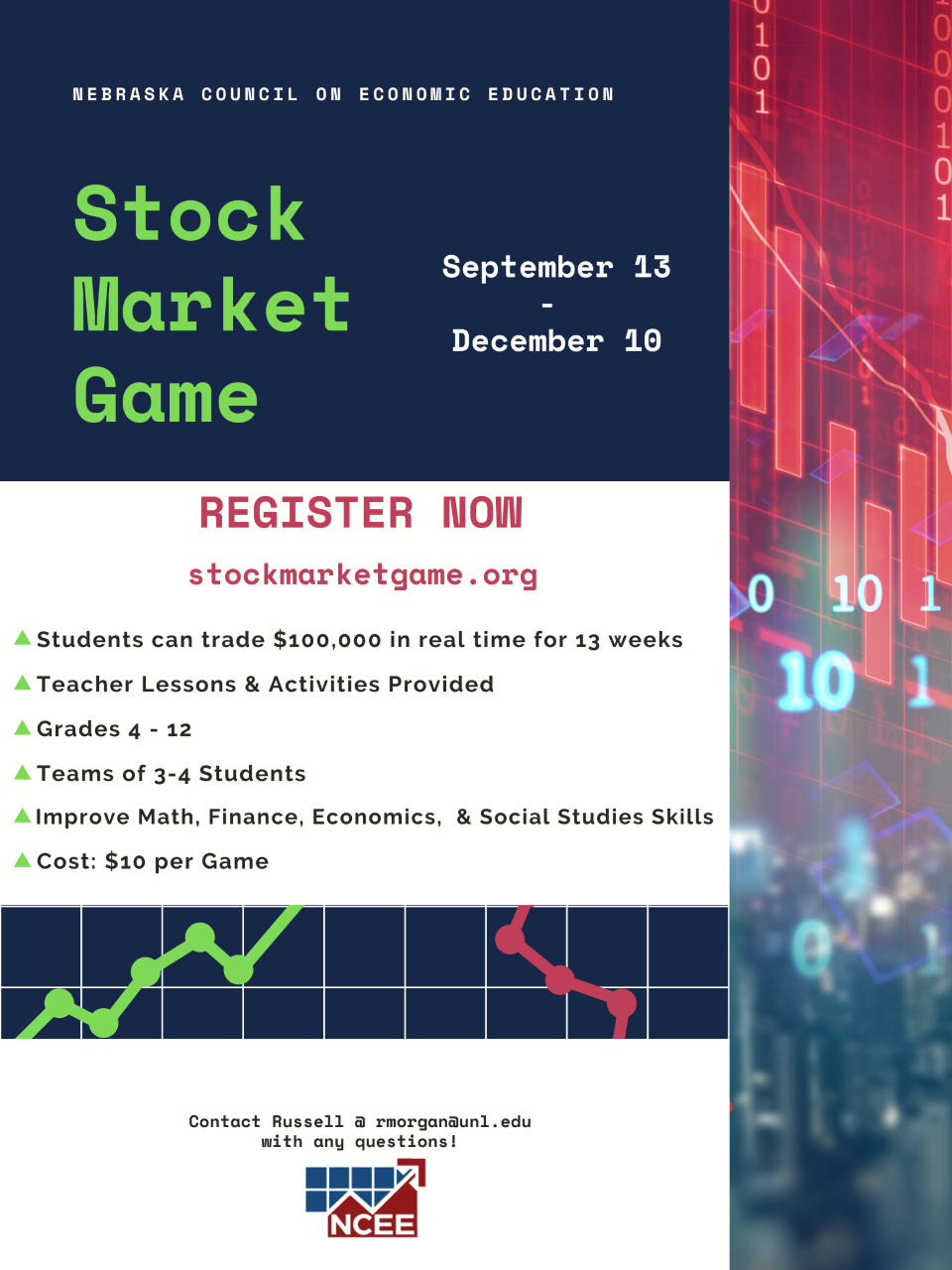
History Hub
From the website:

What is History Hub?
History Hub is a crowdsourcing platform sponsored by the National Archives. It is a place to ask questions, share information, work together, and find people based on their experience and interests. Experts from the National Archives as well as other experts, history enthusiasts, and citizen archivists are available to help with your research.
What can I do with History Hub?
History Hub offers tools like discussion boards, blogs, and community pages to bring together experts and researchers interested in American history. Think of it as a one-stop shop for crowdsourcing information related to your research subject.
Why is the National Archives offering History Hub?
We hope to connect with and better serve customers interested in the historic records we hold.
GerryMander The Game: A Voting District Puzzle Game
Our very own Nebraska Unicameral Legislature is beginning meetings on how to draw district lines in our state. Want to bring current events to your classroom, this is just one way to do it!
From the website:
GerryMander is a simple puzzle game designed to show how gerrymandering can be used to rig an election. In GerryMander, you draw voting districts to favor your party and win the election. Players can use real-world strategies like packing (Squishing opposing voters into a single district) and cracking (Breaking up key voter groups into separate districts) to beat each puzzle. With these strategies players can see how Gerrymandering works while learning about how it happens in the real world.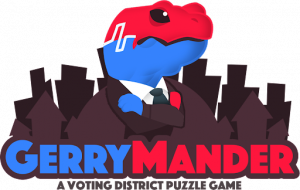
GerryMander was inspired by the ongoing supreme court case, Gill v. Whitford. The goal of GerryMander was to design a tool that demonstrates the bipartisan impact of gerrymandering through simple, easy-to-understand puzzles. By breaking down this issue into a simple game, we hope to make something that’s very hard to explain with written or spoken language more understandable, and raise awareness about the impact of gerrymandering in the United States.
Making complex issues more accessible is an important step toward improving engagement within our democracy. By understanding the mechanisms behind gerrymandering, and redistricting, players can form their opinions on the issue and can take a stance.
We hope that GerryMander is used to to open a dialogue between citizens, their representatives, and lawmakers about issues concerning democracy and representation. As part of the game’s functionality, players are able directly reach out to their representatives about the bipartisan issue of gerrymandering. This makes it easier for players to voice their opinion and to promote fairer redistricting practices within their states.
The Charters of Freedom
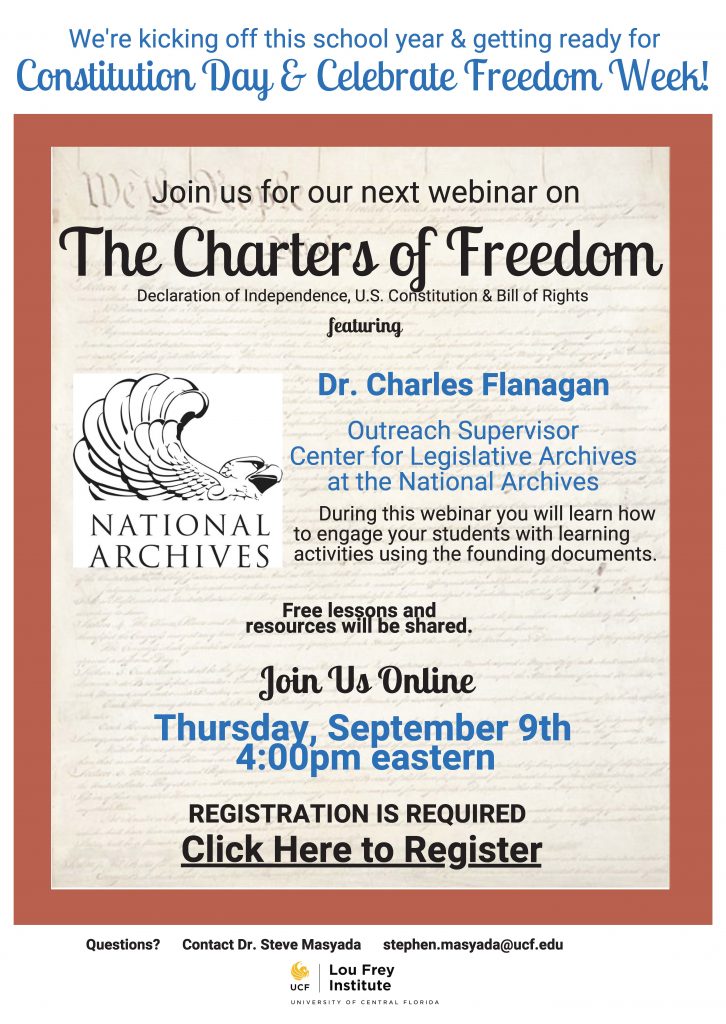
Breaking Bias: Lessons from the Amistad Curriculum
From the website:
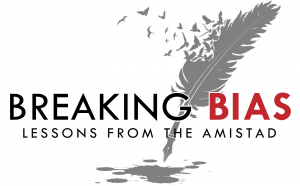 The Foundation’s six-unit curriculum specifically focuses on how African Americans have not only been victims but agents of their own change throughout history, how racial oppression has transformed over time in the U.S. and what our responsibilities are, both individually and collectively, to respond to racism. The curriculum looks to answer the following questions (and many more):
The Foundation’s six-unit curriculum specifically focuses on how African Americans have not only been victims but agents of their own change throughout history, how racial oppression has transformed over time in the U.S. and what our responsibilities are, both individually and collectively, to respond to racism. The curriculum looks to answer the following questions (and many more):
- What is race?
- What have been the consequences of social constructs about race in our country?
- How was chattel slavery a national problem that was reinforced in both the North and the South?
- How did enslaved people and other African Americans resist oppression and bring about positive change?
- How did resistance and resilience among African Americans bring progress despite the obstacles in their path?
- In what ways did the Jim Crow era reinvent earlier forms of African American oppression?
- What rights were African Americans demanding during the civil rights era, and why was there resistance from many white communities to sharing these rights?
- How does racial bias in media impact real-life policies and practices that affect the lives of African Americans?
Journey 2050
From the website:
The year 2050 is a key moment in time – the world’s population will be a projected 10 billion. As a result, food production needs are expected to rise by 60-70% and changing agronomic conditions will place pressure on agricultural yields.
Journey 2050 is a FREE agriculture education program that challenges participants to answer the question, “How will we sustain nearly 10 billion people by the year 2050?”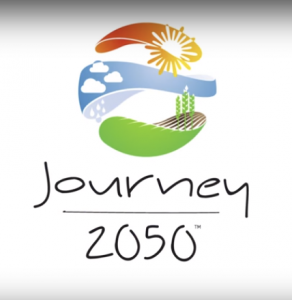
Using an inquiry-based approach, this gamified, virtual program encourages students to make decisions and adjust them as they see their impact on society, the environment, and the economy at a local and global scale. Students will hear from farmers across the globe, learning about their experiences to understand how agriculture differs across the globe.
As students interact with each family, they learn the role of best management practices in feeding the world, reducing environmental impacts, and improving social performance through greater access to education, medical care, and community infrastructure.
Information on the Nebraska Labor Market
Have a lesson plan coming up on personal finance, financial literacy, or the labor market. These resources, some of them Nebraska specific, can help!
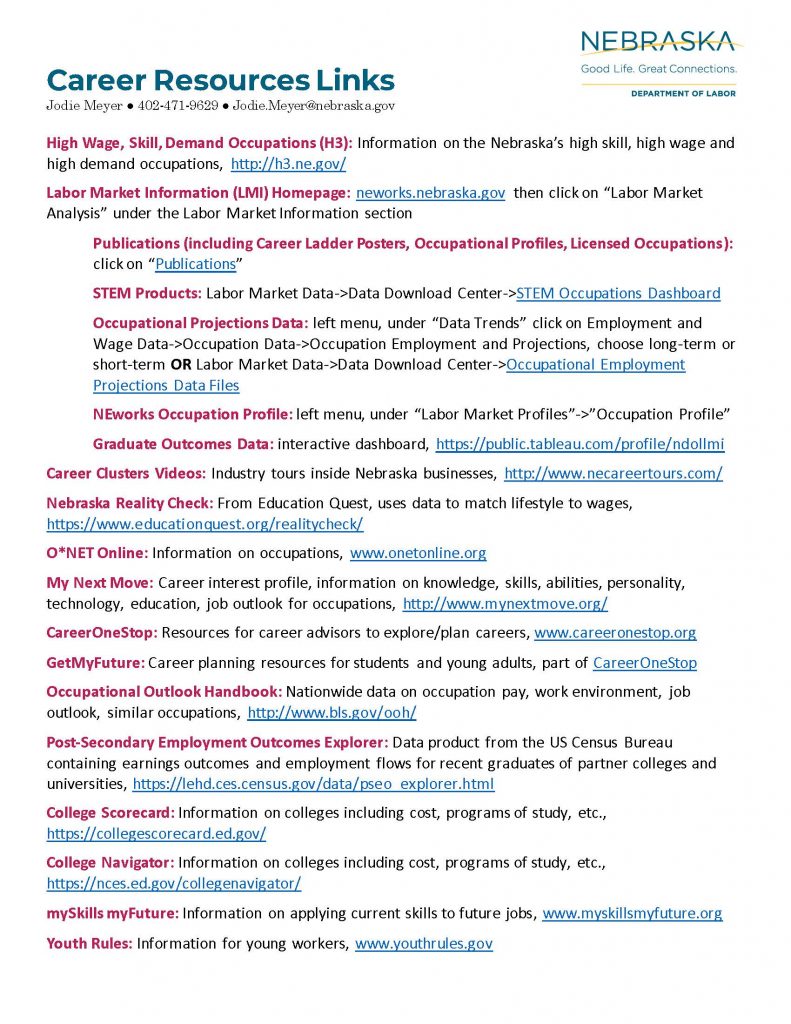
New DAC Statewide Assessment Overview
- Scheduled on August 11, 2021
- Intended for new DACs, but everyone is welcome to attend.
- Focuses on big picture general information (i.e. processes and resources).
- Scheduled from 9 a.m.-12:30 p.m. and will be recorded for those unable to attend the live event.
- Please email Stacey Weber for Zoom information.
August 2021 Newsletter
Welcome (Back) to the 2021-2022 School Year!
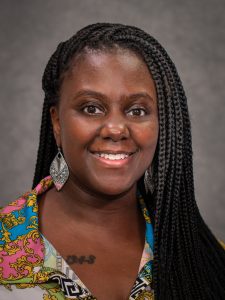 Whew! The world of social studies education has seen more than its fair share of attention in the last couple of months. I wanted to take a moment and send Nebraska Social Studies educators a word of reassurance and some tips for possible use.
Whew! The world of social studies education has seen more than its fair share of attention in the last couple of months. I wanted to take a moment and send Nebraska Social Studies educators a word of reassurance and some tips for possible use.
The Nebraska State Social Studies Standards were approved in November of 2019 and are based on the premise that providing opportunities for learning and educating our students is vital in developing and maintaining an engaged citizenry. Preparing students for our contemporary society cannot be accomplished without a strong emphasis on civics, economics, geography, and history – the core disciplines of social studies. It is imperative that each generation demonstrates positive and productive citizenship skills (SS K.1.1 and SS K.1.2). Because the standards were developed in part by Nebraska educators and vetted by the larger community during public feedback sessions and in open meetings, Nebraska’s History and Social Studies Standards represent what Nebraskan’s value in civics, economics, historical, and geographical education. They illustrate the community’s faith in its children to reach their full potential as learners and citizens.
The state standards outline what a student needs to know, understand, and be able to do at the end of each grade, or in the case of high school – each course. While standards are adopted at the state level by the Nebraska State Board of Education, curriculum (the resources used for teaching and learning the standards) and instruction (the methods used by teachers to teach their students in their classes and help them master the standards) are made at the local level.
Nebraska’s social studies standards and strategies for implementing those standards were developed by Nebraska educators from across the state who used their decades of teaching experience to develop high-quality, age-appropriate standards. The standards emphasize disciplinary skills and processes to be used when studying history, geography, civics, and economics which include:
- Analyze and evaluate patterns of continuity and change over time.
- Evaluate how considering multiple perspectives facilitates an understanding of history.
- Evaluate the relevancy, accuracy, and completeness of primary and secondary sources to better understand multiple perspectives of the same event.
- Gathering, interpreting, and using evidence to develop claims to historical, economic, geographical, and political questions and communicate those conclusions.
- Analyze relationships among causes and effects.
- Create and support arguments about social studies topics and issues using evidence.
The standards also support the process of social studies inquiry, which results in a deeper understanding of content. Incorporating inquiry using the content standards reinforces the same skills contained in the Nebraska English Language Arts (ELA) Standards through reading, writing, speaking, and listening with social studies content.
Here are a few tips to help social studies educators moving forward this school year!
Tips for Educators:
- Build community and trust in and outside the classroom with both students and parents. Students and parents should feel comfortable addressing issues or discomfort with the instructor. Encourage questions and dialogue.
- Foster student agency in your classroom. This can be done through giving students choice in content or products and encouraging them to voice their ideas and advocate for themselves.
- Focus on the History and Social Science Standards and tie your curriculum and instruction back to the standards. The standards have been approved by the State Board of Education and have passed through public feedback.
- Carefully preview all materials used to avoid unexpected issues.
- Use multiple types of primary sources in the classroom. In addition to documents and texts primary sources can be photographs, oral histories, journals and diaries, art, music, video footage, artifacts, and newspapers.
- Provide multiple sources and multiple perspectives in the study of social studies content.
- Avoid generalizations and encourage students not to categorize groups of people based on their experiences in history and historical events.
- Avoid presenting marginalized or oppressed groups as only victims- make sure to include examples of strength, resiliency, and overcoming adversity.
- Use pedagogies that are student centered, such as the inquiry process. Have students do the work of historians, economists, political scientists, and geographers.
- Many times, educators want to use a simulation to create empathy, but this can backfire. Be cautious with simulations. Avoid simulations that have students take on the role of oppressor or oppressed persons. Use journals, oral histories, images, picture books, and literature to create understanding and empathy instead. If using simulations then try simulated court trials, congressional hearings, and historical debates.
- Use structures for discussion like to examine different sides to issues and historical questions. Please refer to the NDE OnDemand video “Difficult Conversations in the Classroom” for additional assistance. https://www.education.ne.gov/socialstudies/difficult-conversations-in-the-classroom/
- When teaching difficult histories like slavery, genocide, removal of indigenous peoples, segregation, lynching, war, the Holocaust and other sensitive subjects, review materials, especially graphic visuals carefully and use them only to the extent they are necessary to achieve the lesson objective. Try to select images and texts that do not exploit students’ emotional vulnerability or might be construed as disrespectful to the victims. If images are too graphic, use other approaches to access the material. https://www.ushmm.org/teach/fundamentals/guidelines-for-teaching-the-holocaust
- Provide plenty of opportunities for students to debrief and evaluate classroom activities.
- If you are in doubt, ask your supervisor or a colleague.
United States Senate Youth Program
Nebraska Social Studies educators! The United States Senate Youth Program application is now available! Encourage your high school juniors and seniors to apply! Application deadline is 4pm CST on September 24, 2021!

US Senator Ben Sasse of Nebraska speaks with his delegates Claire Doyle and Dominic Mendlik on Zoom during the United States Senate Youth Program on Tuesday, March 23, 2021. One hundred and four high school student delegates – two from each state, the District of Columbia, and the Department of Defense Education Activity – take part in the 59th annual United States Senate Youth Program held online (because of the COVID-19 Pandemic) on March 14-17, 2021 and numerous Senate Zoom meeting from February 17 to March 30, 2021. (© Photo by Jakub Mosur and Erin Lubin).
From the United States Senate Youth Program website:
THE 60TH ANNUAL UNITED STATES SENATE YOUTH PROGRAM IS BEING PLANNED FOR MARCH 5–12, 2022 IN WASHINGTON, D.C. THE PROGRAM MAY BE HELD ONLINE PENDING PUBLIC HEALTH GUIDANCE, TO BE DETERMINED IN THE FALL OF 2021.
Delegates will hear major policy addresses by senators, cabinet members, officials of the Departments of State and Defense, leaders of other federal agencies and senior members of the national media. Delegates also traditionally participate in a meeting with a justice of the U.S. Supreme Court and the president of the United States. Most speaking events include in-depth question and answer sessions.
The Hearst Foundations will pay all expenses for Washington Week including transportation, hotel and meals if held in person. The Department of Defense (DoD) annually provides a team of competitively selected men and women officers to serve as mentors and chaperones for the student delegates, and a registered nurse, licensed physician and professional security team are in place at all times throughout an in-person week.
USCIS Questions Only Version
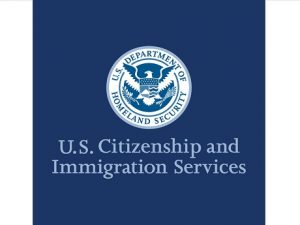 Are you a Nebraska educator using the United States Customs and Immigration Services Naturalization Exam to meet the graduation requirements of 79-724? Have you been looking for a version that comes with the questions only? Look no further! A PDF has been created that has removed the answers to make it easier to provide the complete exam as a study guide or other instructional material to meet your needs.
Are you a Nebraska educator using the United States Customs and Immigration Services Naturalization Exam to meet the graduation requirements of 79-724? Have you been looking for a version that comes with the questions only? Look no further! A PDF has been created that has removed the answers to make it easier to provide the complete exam as a study guide or other instructional material to meet your needs.
OER Conference for the Social Studies
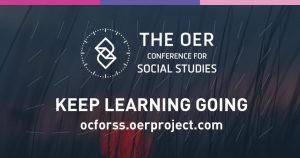
From the OER Project website:
Real teachers, real historians, real ideas. We’re engaging new and established voices to share their experiences and unique perspectives. They offer practical guidance, inspiration and hope.
Join thousands of educators online August 3–5, 2021 to discuss how our world has changed and the impact on teaching practices as many students head back to the classroom this Fall. We’ll explore what history can tell us about this moment, how our view of citizenship has shifted, and what teachers should consider as they shift their practice to meet the challenge.
Registration for this 3 day conference is required.
Financial Literacy Act
The Nebraska Legislature adopted a law in May that requires school districts, when appropriate, to include financial literacy at the elementary and middle school levels. The law also requires students to complete at least a half-credit course in high school on finances before graduating. It is set to begin with the 2023-2024 school year and goes into effect on August 21, 2021.
State Statute 79-3003 states:
“Beginning with school year 2023-24, each school district, in consultation with the State Department of Education, shall include financial literacy instruction, as appropriate, in the instructional program of its elementary and middle schools and require each student to complete at least one five-credit high school course in personal finance or financial literacy prior to graduation.”
NexGen Personal Finance Academy
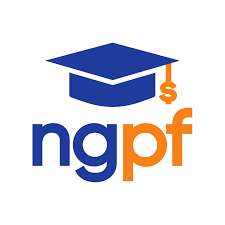
From the NGPF website:
WHAT IS NGPF ACADEMY?
NGPF Academy is our system to offer and track FREE professional development opportunities for educators focusing on personal finance. While anyone can participate in free professional development through NGPF Academy, the swag and gift card incentives are intended for teachers and educators reaching a multitude of students. Finance professionals and homeschool educators are welcome to attend NGPF PD but will not receive Academy credit.
3 WAYS TO START EARNING NGPF ACADEMY CREDITS:
Join live sessions, find support, and collaborate with the community of teachers.
Become NGPF Certified in personal finance topics by taking a multi-week course.
Try new PD opportunities that can be completed on your own time.
Native Land
From the Native Land website:
We strive to map Indigenous lands in a way that changes, challenges, and improves the way people see the history of their countries and peoples. We hope to strengthen the spiritual bonds that people have with the land, its people, and its meaning.
people see the history of their countries and peoples. We hope to strengthen the spiritual bonds that people have with the land, its people, and its meaning.
We strive to map Indigenous territories, treaties, and languages across the world in a way that goes beyond colonial ways of thinking in order to better represent how Indigenous people want to see themselves.
We provide educational resources to correct the way that people speak about colonialism and indigeneity, and to encourage territory awareness in everyday speech and action.
Native-land.ca is a website run by the nonprofit organization Native Land Digital. We are guided by a Board of Directors and an Advisory Council. Our funding comes from friendly organizations and individual donors.
Nebraska Council of Economic Education (NCEE) 2021-2022 Calendar of Events
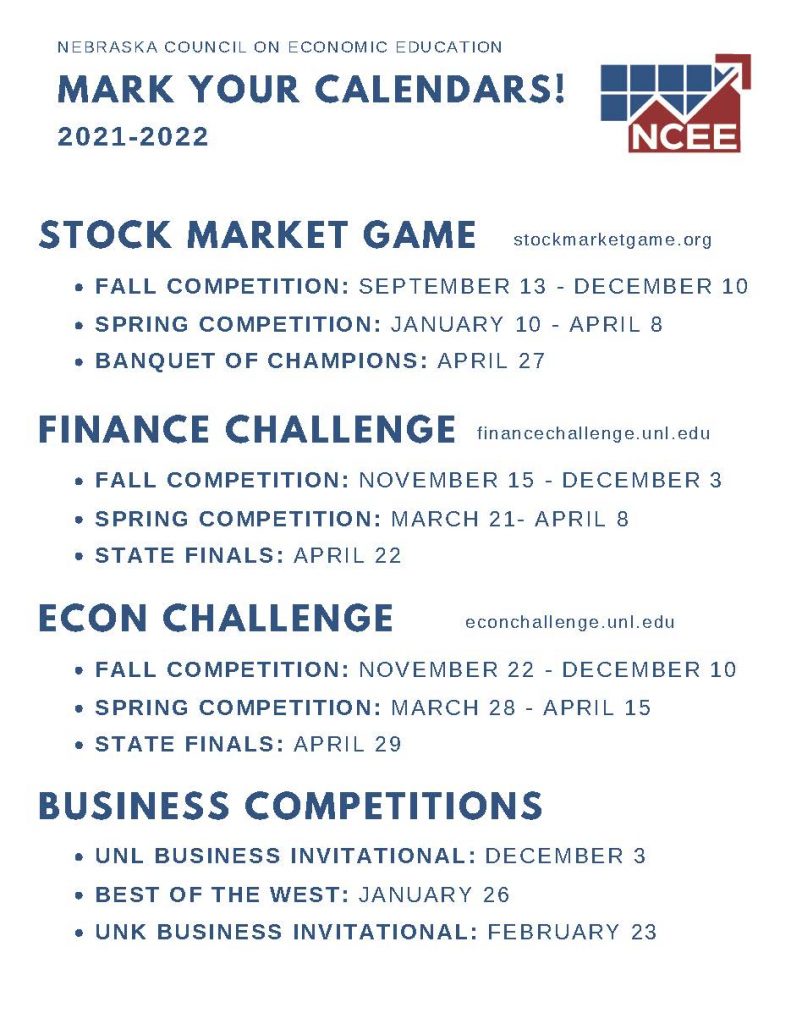
Nebraska and NewsELA Standards Alignment
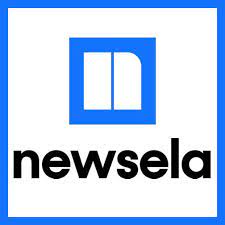 Support your Social Studies classrooms with content that’s aligned to the 2019 Nebraska Social Studies Standards and resonates with students. Newsela’s vetted content builds connections, promotes inquiry, and develops background knowledge, pushing students to think like historians, economists, political scientists and geographers.
Support your Social Studies classrooms with content that’s aligned to the 2019 Nebraska Social Studies Standards and resonates with students. Newsela’s vetted content builds connections, promotes inquiry, and develops background knowledge, pushing students to think like historians, economists, political scientists and geographers.
Newsela Highlights:
- Get even more out of core instruction
- Differentiate instruction easily with texts published at 5 reading levels
- Add relevance or rigor to any lesson
- Daily content added to help teachers and students stay up to date on what is happening around the world
- Provide more reading and writing choices for students
- Save time finding, vetting, and aligning content
- Ensure every student can access background knowledge and discussions
Newsela is aligned with the Anchor Social Studies Strands in K-12.
Civics
Forms and Function of Government and Civic Participation
Economics
Economic Decision Making, Financial Literacy, Exchange and Markets, National Economy, and Global Economy [starting in 5th grade]
Geography
Location and Place, Regions, Human-Environment Interaction, Movement, and Geospatial Skills and Geo-Literacy
History
Change, Continuity, and Context, Multiple Perspectives, Historical Analysis and Interpretation, and Historical Inquiry and Research
60 Days Across the USA
From the “60 Days Across the USA” website: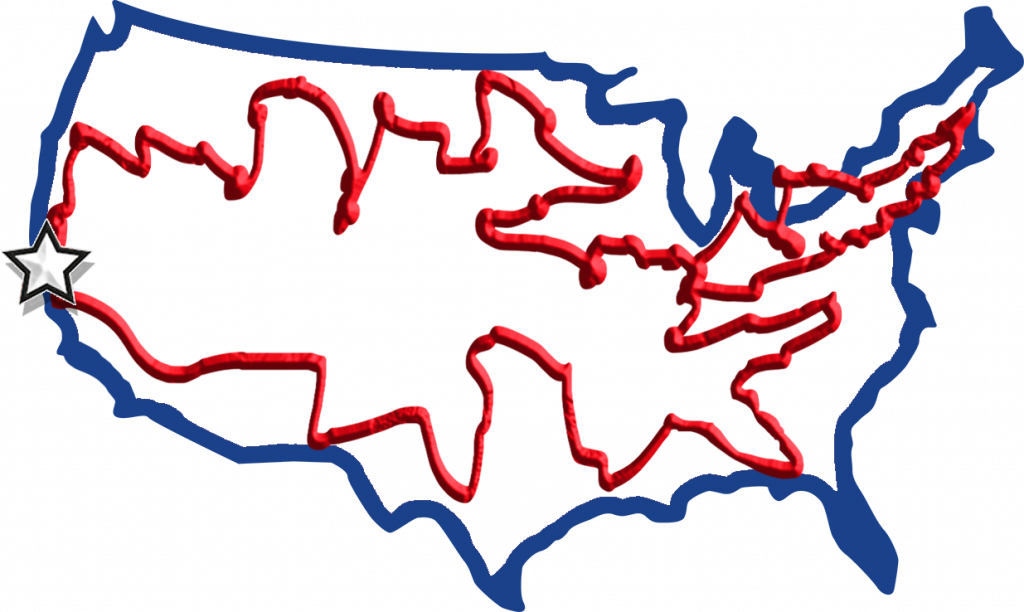
It took 60 days, but our virtual journey is in the books.
Over 8 weeks during spring 2020, we traveled through all 48 states in the continental United States. We visited 370 towns and 33 state capitals. We also encountered dozens of rivers, lakes, mountains, highways, parks, museums and landmarks.
Along the way, I had the privilege of interviewing some terrific people across the country.
There’s been a host of interesting places from the Washington town that celebrated skyjacker D.B. Cooper to the Iowa farm field where singer Buddy Holly’s plane crashed to the Illinois community that brought in purple starlings as a way to solve its mosquito problem to the town in Idaho that’s 36 miles long and less than 1 mile wide, a set-up designed to skirt the state’s liquor license laws.
We visited the towns where Mark Twain and Abraham Lincoln lived as well as the birthplaces of Muhammad Ali and Lucille Ball. There’s also that upstate New York town that was reportedly the setting for the classic movie, “It’s a Wonderful Life.”
I’ve learned so much about this country’s history, culture, geography and people that I could almost put together an encyclopedia.
The research and writing took me nearly 3 years. It was worth every minute and every word of the 400,000 words on the site.
And, now, we continue on.

Over the next few years, I’ll actually be driving portions of this route in 1-week, 2-week and 3-week chunks. I’ll freshen up each of the 60 daily columns as I do.
There’ll also be revisions as events happen in the states and cities we’ve covered. Our first update was posted shortly after the 60th day in our Day 12 column about Louisiana. The new information included the flooding being experienced this week in Lake Charles, a town hit by two strong hurricanes last year. There was also an update on the Day 38 column with President Joe Biden’s visit to a Ford factory in Dearborn, Michigan.
There’ll also be projects that fall under our “spotlight” category where we look at issues such as immigration, hunger and the nation’s manufacturing industry.
Finally, we’re going to rely on our readers to help us fill out the site. There is a Travel Center in the lower left box on the 60 Days USA main page. As you plan and take your road trips, fill that out and let us know where you’re going and what you’ve seen.
Our photo gallery also welcomes all types of images from our readers’ road trips, so just upload them onto our 60 Days USA Facebook page and we’ll get them posted here.
Wishing everyone safe and enjoyable travels as our nation hits the road once again.
Using Innovation and Technology to Promote Economic Inclusion and Financial Capability for Nebraska Students
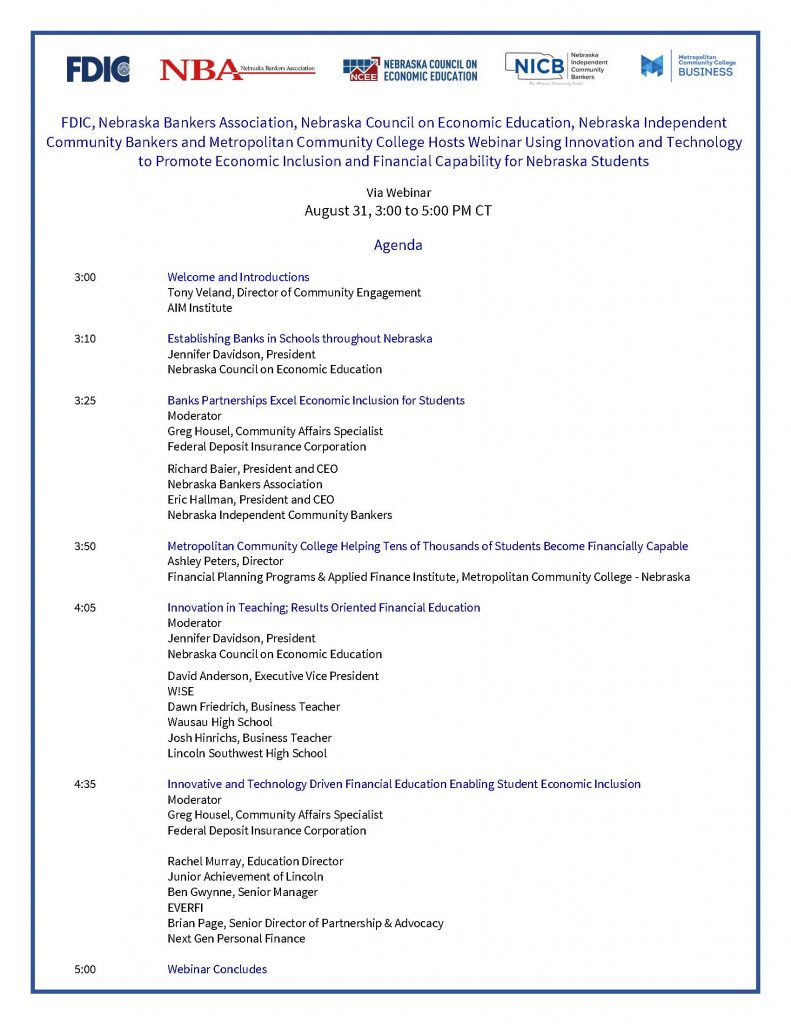
Project PLACE Units
From the Project PLACE website:
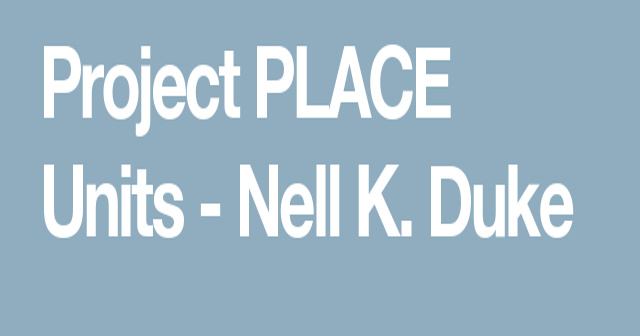 These units were developed for Project PLACE (Project-approach to Literacy and Civic Engagement), an initiative at the University of Michigan and Michigan State University. They are project-based units designed for second-grade students. Support for the development of the materials was provided by the Spencer Foundation and support for their testing was provided by the Spencer Foundation and the George Lucas Educational Foundation. The materials have been modified somewhat from the versions tested to be more useful for educators in a wider range of contexts. Units cover the four major disciplines in social studies: civics/government, economics, geography, and history. We recommend that you teach the units/projects in the order in which they appear. Please note that materials are copyrighted.
These units were developed for Project PLACE (Project-approach to Literacy and Civic Engagement), an initiative at the University of Michigan and Michigan State University. They are project-based units designed for second-grade students. Support for the development of the materials was provided by the Spencer Foundation and support for their testing was provided by the Spencer Foundation and the George Lucas Educational Foundation. The materials have been modified somewhat from the versions tested to be more useful for educators in a wider range of contexts. Units cover the four major disciplines in social studies: civics/government, economics, geography, and history. We recommend that you teach the units/projects in the order in which they appear. Please note that materials are copyrighted.
The Living New Deal
From the Living New Deal website:
The New Deal reached into every corner of the U.S., touching citizens of every kind and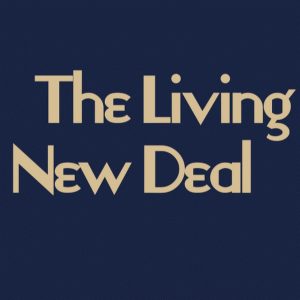 leaving its mark on the nation’s landscape, economy and culture. The Living New Deal is keeping alive the memory of the New Deal. An important part of that effort is educating the public about the Roosevelt era and its legacy. That includes introducing our audience to a wealth of resources in libraries and on the web: books, films, documents, oral histories, and more. We also provide sample curricula for teachers to pass along knowledge of the New Deal to their students. Use the pull-down menu or click on the headings to find what you’re looking for. (Elsewhere, we provide short histories and a host of news items pertaining to the New Deal).
leaving its mark on the nation’s landscape, economy and culture. The Living New Deal is keeping alive the memory of the New Deal. An important part of that effort is educating the public about the Roosevelt era and its legacy. That includes introducing our audience to a wealth of resources in libraries and on the web: books, films, documents, oral histories, and more. We also provide sample curricula for teachers to pass along knowledge of the New Deal to their students. Use the pull-down menu or click on the headings to find what you’re looking for. (Elsewhere, we provide short histories and a host of news items pertaining to the New Deal).
Websites on the New Deal showcase museum collections, photographic archives, history blogs, and much more that may be of interest to anyone looking for information on the New Deal, its programs, artworks and leaders. It includes websites specific to individual states, as well.
New Deal Resources for Teachers is a sampling of syllabi for teachers at the high school and college levels. Preparing a curriculum or lesson plan on the New Deal can be approached from a host of angles, but it is always helpful to see how other teachers have undertaken this important task and what additional resources they have relied on.
Oral Histories of the New Deal directs you to online resources dedicated to personal and family stories of participants in the New Deal, organized by state and program. These stories offer readers a wealth of personal experiences, from CCC camps in Louisiana to a resettlement community in Maryland, from artists working on public murals to African American women who participated in the WPA.
NSCAS Assessment Presentations at NDE Day 2021
Please join us for the Assessment presentations at NDE Day, July 28, 2021
(Click Links for PowerPoints)
9:45-10:30 NSCAS Innovation – Jeremy Heneger
10:40-11:25 NSCAS Growth Q&A (in person only – recording to come later) – Jeremy Heneger
1:00-1:45 Professional Learning Opportunities in 2021 and Formative Assessment Supports Network – Trudy Clark, Aly Martinez Wilkinson, and Dennison Bhola
1:55-2:40 NSCAS Update 2021-22 – Jeremy Heneger
2:50-3:36 NSCAS ACT State Testing for 2022 – Jeremy Heneger and Iris Owens
2:50-3:35 NSCAS Science: Building a Coherent System of Curriculum, Instruction, and Assessment – Rhonda True and Audrey Webb
Shaping The Future
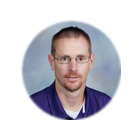
Welcome to Nebraska’s NAESP PreK-3 Leadership Academy blog! We will be bringing you updates and perspectives from the advisors who are leading the 25 members of cohort 2 through the leadership academy coursework. This month we are featuring Jason Hippen, Director of Student Services for Nebraska City Public Schools.
Why did you want to be a part of the Leadership Academy?
I began my career as an elementary resource teacher for District 145 at Eagle Elementary School. I taught for nine years before earning my first administrative position as Principal/Student Services Director at Jefferson Elementary School in Fairbury. I served in that position for three years before taking on my current role. I will be entering my 10th year with Nebraska City Public Schools, and I want to pass on what I have learned to help someone else. I love being a part of a team and working together to come up with solutions. Through the academy, I can make connections with other educators — which will also help me in the future.
Which communities/school districts are represented in your group?
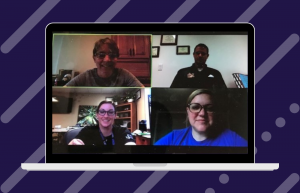
What big ideas resonated with the group most?
- The importance of early childhood education
- We have a great opportunity to work with young students and begin to shape their future
- Communication and connectivity makes a difference
What are you most looking forward to gaining through the leadership academy?
I hope to learn about new ideas, strategies and programs that can impact student success, as well as having the opportunity to collaborate with other Nebraska educators.
NSCAS Summative Test Window
Click for a pdf of all of the NSCAS assessment schedules in one convenient document.
Embracing Early Childhood
Welcome to Nebraska’s NAESP PreK-3 Leadership Academy blog! We will be bringing you updates and perspectives from the advisors who are leading the 25 members of cohort 2 through the leadership academy coursework. This month we are featuring Amy Kroll, Director of School Improvement and Special Education at Weeping Water Public Schools.
Why did you want to be a part of the leadership academy?
I was asked by Melody Hobson to consider being an advisor for the first cohort — I jumped at the chance. I enjoyed it so much and was thrilled to be asked again. I didn’t have a background in early childhood when I accepted the position of special education director in Auburn 9 years ago. Part of that position was managing the early childhood/PreK programs. I learned everything on the job and was able to successfully expand PreK, start a Sixpence and Childcare Partnership Grant. I give credit to the fantastic early childhood staff I was blessed with. Since I am somewhat new to early childhood, I thought that my perspective was one that others could understand. You don’t need years of early childhood experience to lead successful programs — embracing early childhood can happen regardless of educational experience and background.
Which communities/school districts are represented in your group?
- Blue Valley Community Action
- Adams Central Early Learning Center
- Kearney Public Schools
- Educational Service Unit 1
- Valentine Community Schools
In the past month, what topic has caused the most discussion among the group?
How to engage colleagues (other administrators), teachers, families, and community members in supporting early childhood initiatives in their communities and emphasizing that play-based learning is learning.
What big ideas resonated with the group most?
Highly trained staff and strong administrative leadership is essential in the development of high-quality PreK-3 programs.
What are you most looking forward to gaining through the leadership academy?
I love learning from others and having conversations about real-life situations we are all facing. It’s fun to problem solve with a team! I also love reading about the latest research that supports our efforts in schools.



